
Will 2024 Election Change the World? The Crossroads of Democracy
The year 2024 will be an ‘election year’ with major elections taking place in various countries including Taiwan, the European Union (EU), and the United States. The changing dynamics of domestic politics, influenced by these elections, have the potential to reshape global politics and may create geopolitical and geoeconomic risks. Moreover, amid increasing concerns about infringements on the freedom of press and the surge in disinformation, there is heightened attention on the future of democracy and the challenges to conducting fair elections. In this special feature, IOG will analyze election trends across different countries in 2024 and examine the implications of shifts in domestic politics for the international order.
Area & Schedule
- 2025年12月7日
- 2025年11月30日
- 2025年11月16日
- 2025年11月11日
- 2025年10月29日
- 2025年10月29日
- 2025年10月26日
- 2025年10月25日
- 2025年10月12日
- 2025年10月11日
Major Elections and Commentary
 香港議会選挙 2025年12月7日
香港議会選挙 2025年12月7日
 ホンジュラス大統領選挙 2025年11月30日
ホンジュラス大統領選挙 2025年11月30日
 チリ大統領選挙・下院選挙 2025年11月16日
チリ大統領選挙・下院選挙 2025年11月16日
 イラク議会選挙 2025年11月11日
イラク議会選挙 2025年11月11日
Commentary
2025年11月11日、イラク共和国で国民議会選挙(一院制、定数329)が実施された。2003年の民主化以降、イラクは深刻な宗派・民族対立に加え、米国やイランなど外部勢力の継続的な干渉を受け、政治体制は常に不安定な状況に置かれてきた。米国によるイラク侵攻や「イスラム国」の台頭による混乱で治安は悪化したが、現在はある程度落ち着きを取り戻している。
選挙の結果、現職のムハンマド・スーダーニー首相が率いる与党「復興開発連合」が46議席を獲得し、公示前の54議席から減少したものの、第一党の座を維持した。しかし、過半数には届かず、スーダーニー首相が二期目に進むかどうかは今後の連立交渉次第となる。スーダーニー首相は2021年選挙後に発生した政治的混乱を経て、主要なシーア派勢力で構成される政治連合「調整枠組み」から首相候補として指名された。その後、在任中の政治的勢いとイラクの縁故主義的政治システムを活かして、独立した政治基盤を築いた。なお、2021年の前回選挙で最多議席を獲得したムクタダー・アッ=サドル師率いるサドル派は、選挙後の最大会派をめぐる争いに敗れたのち、ボイコットや街頭抗議という手段に訴え、今回の選挙では、同派は抗議行動ではなく選挙への不参加を選択した。サドル派が選挙に参加しなかったにもかかわらず、投票率は前回の44%を超える56%となり、その結果、支持者の動員力や今後の政局への影響力を低下させた同派を今回の選挙で最も打撃を受けた勢力と捉える見方もある。
スーダーニー首相が最も多くの議席を獲得したことは、同氏の指導力に対して一定の評価が与えられたことを示した。スーダーニー政権では「サービスの政府」というスローガンを掲げ、公共サービスの提供、インフラ整備、若者支援、経済改革に取り組む姿勢を強調している。また、外交面では、サドル派はシーア派でありながらイランと対立する立場にあった一方で、政治連合「調整枠組み」はイランからの支援を受けている政党が多い。今回の選挙結果により、イランからイラクへの影響力が増す可能性が広がったといえるが、政治連合「調整枠組み」は米国とイランの対立には関与しない姿勢を貫いている。選挙から1か月以上が経過した現在も、連立協議の見通しは依然として立っておらず、まずは連立政権を無事に樹立できるかどうかが主な注目点となろう。
 タンザニア大統領・議会選挙 2025年10月29日
タンザニア大統領・議会選挙 2025年10月29日
Commentary
2025年10月29日、タンザニア連合共和国で大統領選挙および総選挙(一院制)が実施された。タンザニアでは1992年に複数政党制が導入されたものの、実態としては与党のタンザニア革命党(CCM)による一党優位体制が長く続いている。スウェーデンの独立調査機関V-Dem研究所による民主主義の類型では、同国は「選挙権威主義(Electoral Autocracy)」に分類されている。
大統領選挙には、ジョン・マグフリ前大統領の死去を受けて2021年に昇格したサミア・スルフ・ハッサン大統領(同国初の女性大統領)を含め、各政党から計17人の候補者が立候補した。しかし選挙に先立ち、主要野党である「民主開発党(CHADEMA)」および「変革と透明性のための同盟(ACT)」の候補者が相次いで選挙から排除されたため、現職のサミア大統領にとって実質的な競争相手は不在となり、サミア大統領は97.66%という圧倒的な得票率で当選した。議会選挙においても、革命党は定数403議席中383議席を獲得する圧勝を収め、立法府における支配を一層強固なものとした。
選挙当日にはサミア大統領に抗議するデモの一部が政府庁舎に放火する事態に発展し、これに対して治安当局は催涙ガスの使用や実弾発砲を行ったとされる。その結果、700人を超える死者が出たとの報告もあり、国内外から強い批判が寄せられている。タンザニアは従来、東アフリカ地域において比較的政情が安定した国とみなされてきたが、今回の選挙による国内の混乱は現在も収束しておらず、政情の悪化が懸念される。
 オランダ下院選挙 2025年10月29日
オランダ下院選挙 2025年10月29日
Commentary
2025年10月29日、オランダ下院(任期4年、定数150)で総選挙が実施された。同国の極右政党である自由党(PVV)が移民政策をめぐる対立から2025年6月に連立政権を離脱し、ディック・スホーフ首相(元総合情報保安局長官)率いる4党連立政権が崩壊したことを受けての選挙である。
選挙の結果、PVVは26議席の獲得(前回比11議席減)にとどまった一方で、中道リベラル政党のD66が前回比17議席増の26議席を獲得し、PVVと同じ議席数となったうえ、得票数ではPVVを2万9,668票の差で上回ったことから、僅差での勝利を…(続きはこちらから)
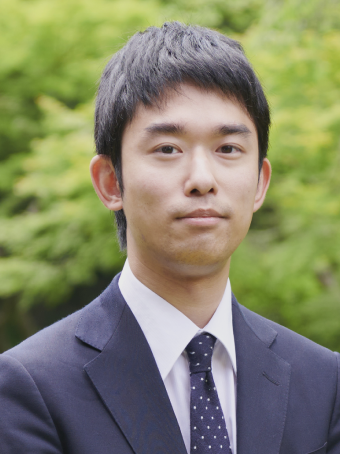
Research Fellow
Yusuke Ishikawa
 アルゼンチン議会選挙 2025年10月26日
アルゼンチン議会選挙 2025年10月26日
Commentary
2025年10月26日に行われたアルゼンチンの中間選挙では、上院72議席のうち24議席、下院257議席のうち127議席が争われ、ハビエル・ミレイ大統領率いる与党「自由前進(LLA)」が上院・下院ともに約4割の得票率を記録して勝利を収めた。他方、野党で左派ポピュリズムの系譜に属するペロン主義連合はそれぞれ約3割の得票にとどまり、勢いを欠いた。
選挙直前には、ミレイ大統領の側近や与党議員をめぐる汚職疑惑が浮上し、政権支持率の低下が懸念されていた。しかし、事前予測を覆す形で与党が決定的な勝利を収め、ミレイ政権が推し進めてきた歳出削減や規制緩和などの新自由主義的改革路線が、国民から一定の信任を得た格好となった。少数与党であったミレイ政権下では、これまで大統領が拒否した野党提出法案が議会で再可決される事態がたびたび生じていた。今回の選挙を経ても与党のみで上下両院の過半数を占めるには至らないが、「ショック療法」とも称されるミレイ大統領の改革路線を推し進めるための政治的基盤は着実に強化されたといえる。深刻なインフレと債務危機を背景に、国民が既存政治への不満を強めるなか、ミレイ大統領の掲げる「小さな政府」と市場改革の方針が、どこまで実行に移されるかが今後の焦点となろう。
外交面では、ミレイ大統領はトランプ米大統領を崇拝し、トランプ大統領もミレイ大統領の経済再建策を評価していることから、両者は親密な関係を築いている。選挙後、トランプ大統領はミレイ大統領の勝利を祝福するとともにアルゼンチンへの経済支援を約束し、ミレイ大統領は「米国がこれほど大規模な支援を行ったのは、世界でも前例のないことだ」と強調した。トランプ政権以外にも、アルゼンチンの掲げる「小さな政府」と市場改革の方針を「政府効率化(DOGE)」を推進するモデルとして注視する国は少なくなく、アルゼンチンの今後の行方は、他国における経済再建策の構想にも影響を与える可能性がある。
 コートジボワール大統領選挙 2025年10月25日
コートジボワール大統領選挙 2025年10月25日
Commentary
2025年10月25日、コートジボワールで大統領選挙(任期5年)が実施され、現職のアラサン・ワタラ大統領が再選を果たし、2011年5月から4期連続で大統領を務めることとなった。コートジボワールの憲法では大統領の再選は1回までと規定されており、2020年大統領選挙の際、ワタラ大統領は当初、党ナンバー2であったアマドゥ・ゴン・クリバリ首相を後継者とする意向を示していた。しかし、同首相が選挙前に急死したことを受けて、ワタラ大統領は2016年の憲法改正によって任期がリセットされたと主張して出馬し、再選を果たしていた。今回の2025年の大統領選挙において、80歳を超えるワタラ大統領が再出馬するかは直前まで不透明であったが、8月に出馬を表明し、再選に至った。
選挙戦では、主要な対抗馬の出馬を認めないなどといったワタラ政権の強権的な姿勢が目立ち、野党から強い反発を招いた。例えば、野党第一党から出馬していたティジャン・ティアム氏は2025年3月にフランス国籍を放棄したにもかかわらず、二重国籍を理由に4月に出馬を認められなかった。また、政府は周辺国のブルキナファソ、マリ、ギニアの不安定な情勢が国内の治安悪化につながることを防ぐためとして、選挙期間中の抗議活動を禁止する措置も講じていた。ワタラ大統領のこうした対応を受け、野党はボイコットを呼び掛けていた。今回の選挙では、与野党勢力の対立が武力衝突に発展した2010年の大統領選挙や暴力行為により80人以上の死者が出た2020年の大統領選挙ほどの混乱は起きなかったが、選挙前の2025年8月にはワタラ大統領の4選出馬や候補者排除に抗議する大規模なデモが発生しており、強権政治への懸念や選挙の正統性をめぐる課題が解消されたわけではないといえよう。
なお、コートジボワールではその後、2025年12月27日に議会選挙も実施された。議会選挙の結果に関する解説はこちらの記事などを参照されたい(Anadolu Ajansı・英語)
 カメルーン大統領選挙 2025年10月12日
カメルーン大統領選挙 2025年10月12日
Commentary
2025年10月12日、アフリカ東海岸に位置するカメルーンで大統領選挙が行われた。同国は人口約2900万人を誇る多民族国家で、第一次産業に依存するものの中部アフリカ経済通貨共同体(CEMAC)内では比較的産業の多角化が進んでいるとされる。選挙時点で92歳で8選を目指すポール・ビヤ大統領のほか、12人の立候補が認められた。2018年の前回選挙時に主要な対抗馬であり、世論調査で高い支持率を見せていたモーリス・カムトは出馬が認められなかった。
選挙結果は10月27日に憲法委員会によって明らかにされ、ビヤ大統領が再選した。2011年、2018年の大統領選挙においてビヤ大統領はそれぞれ77%と71%の得票率を獲得していたが、政府による基礎インフラ整備や経済停滞、福祉への対応が不十分との国民の不満等を受けて、今回は53.66%の獲得にとどまった。長きにあたり大臣職を歴任したのち、今年6月に大臣を辞任して今回の選挙に出馬したイッサ・チロマ・バカリは、分裂した野党候補の中で最有力視されていたが、35.19%の得票にとどまった。投票率は57.76%であった。不正を訴える市民団体や野党による抗議運動が主要都市で行われたが、こうした活動は国軍により弾圧されており、EUやアフリカ連合から懸念が示されている。
ビヤ大統領は、地域エリートを自身が支配する与党・カメルーン人民民主運動党(CPDM)に取り込むことで地域間対立・社会的亀裂をある程度抑え込みつつ、後継論議を党内で禁じることで自身の終身的支配を既定化した。しかし近年では高齢に伴うビヤ大統領の不在期間の増加と水面下での党内派閥争いが政府人事の停滞をもたらすなど、国家運営上の問題が顕在化している。フランスの植民地から独立したカメルーンには、北西・南西部に旧英領で英語話者が多い地域を抱え、分離運動が根強く続いており、北部国境地域ではイスラム過激派「ボコ・ハラム」によるテロ行為が相次いでいる。今後、ビヤ大統領から後継人物への法に基づく移行が失敗すれば、表面化した政治対立に伴う国家機能の低下が国内を一層不安定化させることが懸念される。
 ガボン議会選挙 2025年10月11日
ガボン議会選挙 2025年10月11日
 チェコ下院選挙 2025年10月4日
チェコ下院選挙 2025年10月4日
Commentary
10月3~4日にかけて、中欧のチェコ共和国で下院選挙(任期4年、定数200、比例代表制)が実施された。最大野党のポピュリスト政党でビジネス企業政党の「ANO2011」が前回比+8議席の80議席(得票率34.5%)を獲得し、チェコの下院選挙において単一の政党が達成した最高の得票率で第一党となった。
同国の他の極右政党とは異なり、EUやNATOからの離脱の可能性を明確に否定することで穏健派であることをアピールし、政策面では住居費の高騰を受けて住宅ローン支援などの有権者にとって身近な政策を掲げることで、多くの支持を集めた。ANO2011の党首であるアンドレイ・バビシュ前首相は、現在のスロバキア生まれで、欧州で農業や化学品を中心にビジネスを展開して成功を収めてきた実業家であり、チェコ有数の大富豪である。実業家としての経歴やポピュリスト的な…(続きはこちらから)

Research Fellow
Yusuke Ishikawa
 モルドバ議会選挙 2025年9月28日
モルドバ議会選挙 2025年9月28日
Commentary
9月28日、モルドバで一院制議会(任期4年・定数101、比例代表制)の選挙が実施され、マイア・サンドゥ大統領率いる親欧米派の「行動連帯党(PAS)」が55議席(前回比8議席減)を獲得し、第一党となった。親ロシア派の野党連合「愛国者ブロック(BEP)」の議席は26議席(前回比6議席減、第二党)にとどまった。
第三党としては、新たに設立された政治ブロック「オルタナティブ」が8議席を獲得。同ブロックは表向きには親欧州を掲げているが、実際にはEU加盟プロセスの内部からの遅延を狙っているのではないかとの指摘もある。加えて、親ロシア派の「私たちの党(PN)」と、ルーマニアとの統一を主張する「民主主義を家庭に(PPDA)」も5%の阻止条項を突破し、それぞれ6議席を獲得した…(詳細はこちらから)

Research Fellow
Yusuke Ishikawa
 セーシェル大統領・議会選挙 2025年9月27日
セーシェル大統領・議会選挙 2025年9月27日
 マラウイ大統領選挙・議会選挙 2025年9月16日
マラウイ大統領選挙・議会選挙 2025年9月16日
Commentary
2025年9月16日にマラウイ共和国で大統領選と議会選(定数229)が実施された。マラウイは、アフリカ南東部に位置し、国民の大部分が農業関連の一次産業に従事している。そのこともあり、農産物の価格が国際経済の状況や為替変動の影響を受けやすい経済構造となっている。世界比較で見ても貧困率が高い状況が続いており、輸出依存型の経済のため、外貨獲得が課題とされている。
大統領選については、野党・民主進歩党(DPP)のピーター・ムタリカ党首が56.8%を獲得し、マラウイ会議党(MCP)所属で、現職のラザルス・チャクウェラ大統領に勝利した。ムタリカ氏は2019年選挙で当選したものの、選挙無効が裁判所に宣告され、2020年の再選挙でチャクウェラ氏に敗北していた。2022年以降20%を超えるインフレが続いており、物価高によって国民の生活が圧迫されていることも、選挙の重要な動機として作用した。加えて、燃料や肥料の輸入に必要な外貨が不足し、通貨が切り下げられるなどの経済危機や、頻発する汚職事件、気候変動による食糧不足などが重なっており、有権者は変化を強く求めた。また、ムタリカが大統領を務めていた時期のインフレ対策が一定程度成功していたと有権者に認識されていたことも、同氏の勝利に寄与したと考えられている。
議会選挙では、DPPが前回の62議席から78議席へと大きく伸ばして最大勢力となる一方、MCPは55議席から52議席へと後退し、無所属候補は55議席から73議席へと大きく躍進して、大統領選挙と同様に既成政党への有権者の不満の高まりを示す結果となった。MCPの低調な結果は、前政権期の政策運営に対する有権者の強い不満が一因とされている。さらに、選挙後には無所属議員の一部にDPPへの合流を志向する動きが見られ、その他の無所属議員についても、引き続き議会内調整や政策形成の鍵を握る存在であり続けると見込まれる。
 マカオ立法会議員選挙 2025年9月14日
マカオ立法会議員選挙 2025年9月14日
Commentary
2025年9月14日、中国の特別行政区マカオで、議会にあたる立法会の議員選挙が実施された。定数33議席のうち14議席は市民による直接選挙、12議席は親中団体を中心とする業界団体、残り7議席は行政長官の指名によって選出される仕組みとなっているが、前回に続き今回も民主派は議席を獲得することはなかった。この選挙結果を受け、中国政府や親中メディアは「愛国者がマカオを統治する」ことに成功した「民主的な祭典」であったと表現した一方で、西側メディアや民主派勢力は「民主主義の葬式」等と厳しく批判した。
マカオでは2024年に選挙法が改正され、政府への忠誠などの立候補要件が明文化されるとともに、中国の影響下にある委員会が候補者を事前に審査するようになった。今回の選挙では、7月に選挙管理委員会が「政府に忠誠を尽くしていない」として12人の立候補資格を取り消した。また同月、マカオ当局は国家安全維持法を初めて適用し、民主派の象徴的存在であったオウ・カムサン元立法会議員を外国勢力との共謀容疑で逮捕した。
今回の選挙の投票率は53.35%であった。過去最低を記録した前回(2021年)の約42%を上回ったものの、返還前の選挙も含めると過去三番目に低い投票率となり、白票と無効票の数は過去最多であったことから、民主派の候補不在に対する市民の不満が表れた選挙であったとの指摘も少なくない。
同じく「一国二制度」が導入されている香港と比較すると、マカオでは従来より民主派政治勢力の影響力は限定的であった。マカオ経済の中心がカジノや観光産業であることや、マカオに住む人々のアイデンティティが中国本土に近いことから政治的な運動が比較的少なかったことが主な理由とされている。しかし、前回および今回の選挙結果からは、香港と同様にマカオにおいても、中国政府に批判的な勢力の排除を意図した「愛国者による統治」の強化が進んでいることがうかがえる。
 ノルウェー総選挙 2025年9月8日
ノルウェー総選挙 2025年9月8日
Commentary
2025年9月8日、ノルウェー総選挙(定数169、比例代表制)が実施された。ヨナス・ガール・ストーレ首相率いる与党・労働党(中道左派)は5議席増の53議席を獲得し、他の中道左派政党と合わせて過半数を超える議席を確保したものの、議席数は89と過半数の85をわずかに上回るにとどまり、今後の安定的な政権運営には不透明感が残る。ノルウェーでは、政府年金基金によるイスラエル企業への投資が行われていたことが国民の議論の的となっており、連立の一角を担う左派政党の一部からも強い反発を招いている。中道左派陣営には石油・ガスの段階的廃止や縮小を求める政党も複数存在する。
また、前回の選挙では気候変動対策が主要な争点となったが、今回は生活費の高騰に加えて、富豪が国外に流出しているとして野党から削減もしくは廃止を求める声が上がっている富裕税の是非などが焦点となった。そうしたなかで労働党が第一党の座を維持したことは、近年右派が政権入りしているか政権を支えているスウェーデンやフィンランドとは対照的な結果となった。労働党が勝利した要因としては、イェンス・ストルテンベルグ元首相・元NATO事務総長の復帰により支持が回復したことに加え、トランプ政権による関税政策やウクライナ戦争をめぐる国際情勢の不安定化の中で、有権者が政治の安定を求めたことなどが挙げられている。
他方、右派ポピュリスト政党である進歩党は、移民に対して厳しい政策を掲げるとともに、グリーン補助金や国際援助の削減による国内の大規模な減税を掲げて47議席を獲得し、前回選挙の2倍以上となる大躍進を遂げた。進歩党は他の欧州諸国と同様に、とりわけ男性の若年層を中心に支持を広げている。進歩党の台頭を受け、2013年から21年にかけて政権の中核を担った保守党(中道右派)は36議席から24議席へと大幅に議席を減らし、第2党の座から陥落した。

Research Fellow
Yusuke Ishikawa
 ガイアナ共和国選挙 2025年9月1日
ガイアナ共和国選挙 2025年9月1日
Commentary
2025年9月1日、南米のガイアナ協同共和国で議会選挙(定数65、比例代表制、任期5年)が実施された。人口約83万人の同国は、2019年12月の石油生産開始以降、毎年二桁の経済成長率を記録し、世界で最も速いペースで成長する国の一つとなっている。しかし、貧困率の高止まりや医療整備の遅れが指摘されており、国民全体に成長の恩恵が行き渡っているとは言い難い。今回の選挙では石油収入の分配が主要な争点となり、与党である人民進歩・市民党(PPP/C)は福祉や教育インフラ拡充の実績を強調した一方、野党は公的支出の拡大や、石油収入の政府取り分増加につながる米石油会社との契約見直しを訴えた。
投票の結果、イルファーン・アリ大統領(大統領は議会によって選出される)率いるPPP/Cが3議席増の36議席を獲得し、第一党の地位を維持した。また、米国から汚職を理由に、その父と共に制裁を受けている反米ナショナリストの実業家アズルディン・モハメドが今年6月に結成した新党・国家建設への投資(WIN)は16議席を獲得した。これに対して、従来の最大野党・国民統一のためのパートナーシップ(APNU)は19議席減の12議席と第三党に沈んだ。長らくPPPとAPNUを軸とする二大政党制が続いていたガイアナにおいて、第二党の得票率が3割を下回ったのは民主化以後初めてのことである。WINは党首の知名度を生かした草の根活動により、低所得者層や先住民族へのアプローチに成功した一方、APNUは前回総選挙をめぐる不正疑惑による不信を回復できなかったとみられる。投票率は58.41%と、前回比約12ポイント下落した。
選挙後は規定に基づき、第一党党首のアリが大統領に再任された。PPP/Cが過半数を維持したため、公約に掲げる経済基盤の多角化や人材育成へ向け、安定した政権運営が続く見込みである。また、隣国ベネズエラがエキセポ地域をめぐる領土紛争を激化させる中で、引き続き米国をはじめとする友好国との連携強化も進むと予想される。ただし、投票率の大幅低下と新党の躍進が示した既存制度への信頼低下や国民の不満に対しては、政府による真摯な対応が求められる。
 サモア議会選挙 2025年8月29日
サモア議会選挙 2025年8月29日
Commentary
8月29日、サモア独立国で一院制議会の51議席を争う総選挙が実施された。サモアは南太平洋に位置する島国で、面積は東京都のおよそ1.3倍。農業と観光業が主要産業であり、海外の出稼ぎ労働者からの外貨送金がGDPの大きな割合を占めている。軍隊は保有しておらず、有事の際にはニュージーランドが安全保障を提供するという二国間の取り決めが存在する。政治制度としては、慣習的に議会が首相を任命する形式を採っているが、実態は4つの有力部族の酋長から選ばれる国家元首を中心とした立憲君主制に近い。議員の多くは「マタイ」と呼ばれる各地方の名望家の出身であり、部族社会の構造が政治に深く反映されている。なお、サモアは太平洋諸国の中で最初に中華人民共和国を国家承認した国であり、2022年にも二国間協力を強化する協定が結ばれている。
今回の選挙は、与党FAST党の内紛により実施を余儀なくされた。2025年1月、FAST党の創設者・初代党首であり、当時農林水産大臣を務めていたラアウリ・レウアテア・ポラタイバオ・フォシが刑事告発を受け、フィアメ・ナオミ・マタアファ首相(同国初の女性首相)はラアウリ大臣らを更迭した。しかし、この措置に党内の反発が強まり、間もなくフィアメ首相は党首を解任され、フィアメ派が離党したことで、FAST党は分裂状態に陥った。この結果、フィアメ政権は少数政権となり、5月には国家予算案が否決され、最終的にフィアメ首相は6月3日に議会を解散した。
9月5日に開票が終了し、FAST党は5議席増の30議席を獲得して過半数を確保することとなった。これを受け、ラアウリ党首は9月16日に首相に就任した。他方、党首を解任されたフィアメ前首相が新設したサモア統一党(SUP)は3議席にとどまり、FAST党以前に政権を長く維持してきた人権擁護党(HRPP)も14議席の獲得にとどまった。フィアメ元首相の苦戦は、エネルギー不足に伴う全国規模の停電や、物価高への対応に対する有権者の不満によるものとみられている。
 ボリビア大統領選挙(初回投票)/ 議会選挙 2025年8月17日
ボリビア大統領選挙(初回投票)/ 議会選挙 2025年8月17日
Commentary
【大統領選挙(初回投票)】8月17日、ボリビア多民族国 (Plurinational State of Bolivia)で総選挙および大統領選挙の初回投票が行われた。ボリビアは立憲共和制を採用しており、2006年以降、困窮する先住民族層からの支持と、新自由主義的改革への反発を背景に、エボ・モラレス元大統領およびルイス・アルセ現大統領による反米左派政権が継続してきた。ボリビア経済は農業や天然資源などの一次産業への依存度が高く、EVバッテリーには欠かせないリチウムの産地で世界最大の埋蔵量を誇る。こうした資源をめぐっては、ロシアや中国系企業が同国でのリチウム採掘への積極的な参画 を試みていたが、選挙前には新規契約の承認をめぐり、ボリビア議会や先住民族団体 が反発を示していた。また、経済格差が大きく、貧困率も極めて高い国として知られている。
大統領選の初回投票では、中道野党・キリスト教民主党(PDC)のロドリゴ・パス上院議員が、都市部を中心に地方でも一定の支持を獲得し、得票率32.06%で首位に立った。これに続き、右派野党・自由と民主主義同盟(LIBRE)のホルヘ・キロガ元大統領が26.7%で2位となった。一方、与党の左派・社会主義運動党(MAS)のルイス・アルセ大統領は選挙前に不出馬を表明しており、後継候補のエドワルド・デルカスティージョ前内務相への支持は3.17%に留まった。10月18日にパス上院議員とキロガ元大統領による同国初の決戦投票が行われるが、合計で約20年間続いたMAS政権の交代は確実となった 。この結果は、外貨不足、物価上昇、燃料不足といった経済危機への与党の対応に対する有権者の不満が強く表れたといえる。パス上院議員とキロガ元大統領はともに、選挙戦においてMAS政権下で実施された経済統制の見直しを公約に掲げていた。特にキロガ元大統領は、前政権がロシアおよび中国系企業と締結したリチウム採掘計画の破棄を主張しており、新政権の政策が転換する可能性がある。
【議会選挙】また、経済の低迷を背景に行われた大統領選と同様に、議会選挙(上院36名、下院130名)でも与党MASは苦戦を強いられた。長らく続いた実質的な一強体制のもと、選挙前には上下両院で圧倒的な議席数を誇っていたMASだったが、今回の選挙では、上院で21議席を失って全議席を喪失し、下院でも73議席減のわずか2議席という、壊滅的な敗北を喫した。他方、前回は議席を得られなかったPDCが上院16議席、下院47議席を獲得し第一党に躍進。自由と民主主義同盟(LIBRE)も上院12議席、下院39議席を確保し、第二党となった。なお、2019年大統領選では不正選挙疑惑が取り沙汰され、モラレス大統領が辞任・亡命に追い込まれた。この経緯から今回はEUと米州機構(OAS)が監視団を派遣し、同監視団は8月の選挙を「円滑かつ公正」であったと暫定的に評価している。
 参議院選挙 2025年7月20日
参議院選挙 2025年7月20日
 ブルンジ共和国議会選挙 2025年6月5日
ブルンジ共和国議会選挙 2025年6月5日
 韓国大統領選挙 2025年6月3日
韓国大統領選挙 2025年6月3日
Related Video
 ポーランド大統領選挙 2025年6月1日
ポーランド大統領選挙 2025年6月1日
Commentary
2025年6月1日、ポーランドで大統領選挙(任期5年・3選禁止)の決選投票が実施された。保守ナショナリスト系政党の野党「法と正義(PiS)」が支持した無所属のカロル・ナブロツキ候補が50.89%の得票を獲得し、僅差でドナルド・トゥスク首相が率いる中道右派の与党「市民プラットフォーム(PO)」に所属するラファウ・トシャスコフスキ候補(ワルシャワ市長、49.11%)を破って当選した。決選投票の投票率は71.63%と過去最高になった。
5月18日に行われた初回投票では、トシャスコフスキ候補が約31%の得票で首位に立ち、ナブロツキ候補が約30%で続いたが、その差はごくわずかだった。2024年末時点では、両者の支持率には15ポイント近い開きがあったものの、選挙戦が進むにつれて急速に差が縮まっていた。加えて、一時はナブロツキ候補との差を5ポイント以内にまで詰めた極右政党「同盟」のメンツェン候補が、初回投票で約15%を獲得して第3位に入っており、決選投票はトシャスコフスキ候補にとって厳しい展開が予想された…(続きはこちらから)

Research Fellow
Yusuke Ishikawa
 ベネズエラ議会選挙 2025年5月25日
ベネズエラ議会選挙 2025年5月25日
Commentary
2025年5月25日、ベネズエラで国民議会選挙が行われた。同国では1998年に大統領に就任したウゴ・チャベスとその後継者であるニコラス・マドゥロ大統領による左派的な改革と権威主義的な統治が行き詰まり、混迷を深めている。2024年7月28日の大統領選挙では、反体制派のエドムンド・ゴンザレス候補の勝利を予想した出口調査や世論調査に対し、選管はマドゥロの勝利を発表し、国際社会は強く反発した。
大統領選における自陣営の勝利を主張し続けている右派野党連合(PUD)は今回の議会選挙へは参加せず、PUDを事実上率いるマリア・マチャド氏は野党支持者に対して投票ボイコットを呼び掛けた。選挙管理委員会は「活動的有権者」による投票率が42.63%と発表したが、有権者登録数と発表された投票総数を照合すると投票率は25.63%、さらに野党の推計によれば実際の投票率は15%以下であるとされる。マチャド氏は選挙そのものに正統性がなく、マドゥロ大統領が政治的に敗北したと主張した。全285議席に対し、与党連合(PSUV)が256議席を獲得して引き続き多数を維持した一方、選挙に参加した野党の獲得議席は29議席にとどまった。
ベネズエラは、すでに同国に対する二次関税の導入や制裁再強化など圧力を掛ける米トランプ政権と、移民・麻薬政策においても対立する。すでに空母打撃群も派遣して、カリブ海での「麻薬密輸船」を攻撃している状況の中で、これ以上、トランプ政権との対立がエスカレートすると、マドゥロ政権の行方も不透明になる。
 スリナム総選挙 2025年5月25日
スリナム総選挙 2025年5月25日
Commentary
2025年5月25日、南米のスリナム共和国の国民議会(一院制、定数51名、任期5年)で総選挙が実施された。スリナムは1975年にオランダから独立し、1980年と1990年にはクーデターによって一時的に軍政が敷かれたものの、1991年以降は民主的選挙を通じた政権交代を維持している。今回の選挙は、2022年に憲法裁判所が従来の区割りについて「一票の格差」の観点から違憲と判決したことを受け、翌年の選挙制度改革によって新たに全国を単一の選挙区とする比例代表制が導入されて以来、初めての国政選挙であった。
チャンドリカパサード・サントキ前大統領が在任中の5年間には、汚職スキャンダルが相次ぎ、緊縮財政に対する反発から大規模な抗議デモが発生するなど、国民の不満が高まっていた。こうした状況を反映して、今回の選挙では野党・国民民主党(NDP)が18議席を獲得して第一党に返り咲き、与党・進歩改革党(VHP)は17議席にとどまり第二党に後退した。残る16議席は複数の少数政党が分け合い、いずれの政党も単独で過半数を獲得することはできなかった。スリナムでは多様な民族が共存し、各政党は特定の民族を支持基盤としているため、単独で過半数を獲得する政党は現れにくい。今回も例外ではなく、単独で過半数に届かなかったNDPは他の少数政党と連立を組むことで、大統領の選出に必要な3分の2の多数を確保した。7月6日、国民議会はNDPを率いたイェニファー・へーリンクス・シモンス氏を大統領に選出し、同国初の女性大統領の誕生となった。
今後の焦点の一つは、2028年に操業開始が予定されている油田開発プロジェクトである。スリナムは、依然として南米で最も貧しい国の一つだが、2019年以降沖合で大規模な油田が相次いで発見され、今後数十年間で数十億ドルの収益が見込まれている。シモンス新大統領は、選出後の就任演説で「石油開発の利益を全国民が享受できるようにする」と述べ、石油収入の公平な分配を強調した。石油ブームへの期待が高まる一方で、「資源の呪い」に陥る危険性もあり、石油収入を活用して長期的な成長を実現できるかどうかが、今後の政権運営の鍵となる。
 Romanian presidential election May 18, 2025
Romanian presidential election May 18, 2025
 ポルトガル総選挙 2025年5月18日
ポルトガル総選挙 2025年5月18日
Commentary
モンテネグロ首相の利益相反スキャンダルを受けて、2025年3月に内閣信任決議が否決され、5月18日にポルトガル議会(任期4年、定数230)で総選挙が実施された。2022年、2024年に続く今回の総選挙で、3年余りの間に3度の選挙が行われる異例の事態となっており、政治的に不安定な状態が続いている。
今回の選挙では、社会民主党(PSD)を中心とする与党連合「民主同盟」(AD)が前回より9議席増の89議席を獲得した。また、前回の選挙で議席を4倍に増やした極右政党シェーガも、有権者の反移民感情や経済的・文化的不安に訴えかけることで、移民が多い南部や中部の選挙区を中心に支持を広げ、50議席から58議席へと議席を伸ばして第2党に浮上した。一方、2015年から2024年まで長期にわたり政権を担っていた野党・社会党(PS)は、今回の選挙で20議席を失い、58議席にとどまるという1987年以来最悪の結果となった。信任決議では他の野党(リベラル・イニシアティブ党を除く)とともに反対票を投じることで議会を解散に追い込んだPSだったが、現地報道では、若年層や低所得層を中心とする政権批判の受け皿になりきれず、党内の再建も不十分だった点が指摘される…(続きはこちらから)

Research Fellow
Yusuke Ishikawa
 フィリピン中間選挙 2025年5月12日
フィリピン中間選挙 2025年5月12日
Commentary
2025年5月12日、フィリピンでは上院の半数(12議席)および下院全体(317議席)の改選を対象とする中間選挙が実施された。本選挙は、フェルディナンド・マルコス大統領とサラ・ドゥテルテ副大統領の対立が激化する中、両者の「代理戦争」とも言える様相を呈した。両者は2022年の大統領選挙では協力関係にあったが、サラ副大統領による機密費の不正使用疑惑とそれに伴う弾劾案の可決(のちに訴追手続きの不備により違憲判決が下された)、さらに同氏の父親であるロドリゴ・ドゥテルテ前大統領が国際刑事裁判所(ICC)に逮捕されたことを受け、関係は急速に冷却化した。フィリピン政治では、伝統的に政党システムの制度化の度合いが低く、政党よりも特定の一族やその縁戚の影響が政治に及ぶ傾向がある。
選挙の結果、下院選(317議席)ではマルコス陣営に属する政党連合が多数派を占め、一定の信任を得たが、上院(定数24、改選12)では事前予想を下回る6議席にとどまり、ドゥテルテ派は5議席を獲得している。また、同時に実施されたドゥテルテ家の地盤である南部ダバオ市長選では、欧州で国際刑事裁判所(ICC)に拘留されているドゥテルテ前大統領が勝利した。選挙後、マルコス大統領はドゥテルテ家との「和解」を求める意向を示しており、その影響力に配慮せざるを得ない状況となっている。食料品をはじめとする物価の高騰や景気後退の影響により、マルコス政権への批判は強まりつつあり、これらの経済的要因もマルコス派にとっての逆風となったと考えられる。
外交面では、南シナ海の天然資源をめぐる協力関係構築のために中国に接近した前政権とは対照的に、マルコス政権は、セカンド・トーマス礁をめぐる領有権争いを抱える中国に対抗するため、同国との対抗姿勢を示し、同盟国である米国に加え、日本や豪州などのパートナー国との連携も強化している。今回の選挙でマルコス政権の基盤は維持されたものの、マルコス氏に批判的なドゥテルテ派が上院選で健闘したことは、2028年大統領選以降の外交・安全保障政策の継続性に不透明さを残す結果となった。
 Albanian parliamentary election May 11, 2025
Albanian parliamentary election May 11, 2025
 Singaporean general election May 4, 2025
Singaporean general election May 4, 2025
 Canadian general election April 28, 2025
Canadian general election April 28, 2025
 Australian general election May 3, 2025
Australian general election May 3, 2025
 トリニダード・トバゴ総選挙 2025年4月28日
トリニダード・トバゴ総選挙 2025年4月28日
Commentary
2025年4月28日、トリニダード・トバゴ共和国で総選挙(小選挙区制・定数41議席)が実施された。同国はベネズエラ本土から約11km沖のカリブ海に位置し、首都のあるトリニダード島とトバゴ島の二島から構成される、人口約137万人の国家である。カリブ海地域有数の石油・天然ガス産出国でもあり、経済はエネルギー価格の動向に大きく左右されてきた。政治体制は議会制で、近年はアフリカ系住民を支持基盤とする人民国家運動党(PNM)と、インド系住民を支持基盤とする統一民族会議(UNC)による二大政党制が定着している。
選挙に先立つ3月16日、与党PNMのキース・ロウリー首相は、悪化する治安情勢や政治的圧力などを背景に、通常任期を待たずに辞任し、後任として政権の要職を歴任してきたエネルギー大臣のスチュアート・ヤングを指名した。今回の選挙は、ヤング首相が就任翌日に議会を解散したために行われた総選挙であったが、与党の議席は伸び悩み、牙城とされてきた選挙区でも敗北を重ねたことで獲得議席は13議席にとどまった。これに対し、野党のUNCは、6議席増となる26議席を獲得して過半数に達したことから、10年ぶりに政権交代が実現することとなった。近年の犯罪件数の急増や生活費の高騰に対する不満から、有権者の間では人種や従来の支持政党を超えてUNC支持に回る動きが広がったことが、UNCの勝利につながったと指摘されている。5月1日には、2010年から2015年まで首相を務めた経験を持つUNC党首のカムラ・パサード=ビセッサーが首相に就任した。外交面では、PNM政権がアメリカの民主党に近い姿勢を維持しつつ、資源開発をめぐってベネズエラのマドゥロ政権との協調も模索していたのに対し、UNC政権はトランプ政権支持の立場を鮮明にしている。また、ベネズエラに対しても強硬姿勢を示しており、政権交代を受けて外交路線に変化の兆しがみられている。
 エクアドル大統領選挙・議会選挙 2025年4月13日
エクアドル大統領選挙・議会選挙 2025年4月13日
Commentary
【大統領選挙】2025年4月13日、エクアドルにて大統領選挙の決選投票が実施され、中道右派で現職のダニエル・ノボアが再選を果たした。著名な実業家の息子であるノボアは、2023年10月の前倒し選挙においてギジェルモ・ラッソ前大統領の任期を引き継ぐかたちで当選しており、今回は二期目へむけた出馬であった。2月9日の第一回投票では、一位となったノボアと二位の左派候補ルイサ・ゴンサレスの差は僅かであったが、決選投票ではノボアが55.6%を獲得して勝利した。
エクアドルでは経済停滞による高失業率や不安定な電力供給に加え、コカインを扱うギャングの浸透による治安悪化が深刻な問題となっている。こうした状況に対し、ノボアは治安対策を主要な争点とし、国営メディアにおける一方的な報道や政府広告の濫用を通じて優位な報道環境を確保する中で、治安対策の実績やドナルド・トランプ米大統領との協調路線をアピールした。非常事態宣言の頻発や軍の出動を伴うノボアの治安対策に対しては強権的との批判が根強いものの、対立候補のゴンザレスは有効な対案を打ち出せなかったうえ、汚職有罪判決を受けたカリスマ的指導者ラファエル・コレア元大統領との強い結びつきが有権者に忌避され、決選投票で支持の広がりを欠いた。
外交面では、ノボアは治安対策や安全保障における米国との協力を模索する中で、憲法改正による太平洋沿岸のマンタ基地への米軍受け入れ再開を検討しており、米国側からは好意的に受け止められている。一方、中国とは昨年発効したFTAを基盤に経済関係を拡大し、FDIや融資導入を通じて西側資金への過度な依存からの脱却を図っている。ノボア自身が米国籍を有し、マール・ア・ラーゴを訪問するなどトランプ陣営との結びつきを強めてきた経緯があり、このことが対中接近に対する米国の警戒を和らげているようである。
【議会選挙】第一回投票と同日に行われた国会選挙では、2023年の137から増加した定員151名に対してコレア派の左派野党である市民革命党(RC)が2023年選挙の52議席から67議席へ議席数を伸ばした。ノボア率いる与党・国家民主運動(ADN)は14議席から躍進して66議席を獲得、残りは小規模政党に分散した。RCとADNが得票率を伸ばした一方で小政党が凋落したことで、従来断片化していた議会は二大政党制に近づきつつも分極化が進んだ。RCが第一党となったものの、ADNが他党からの離反者や少数派を取り込むことで77議席の絶対多数を確保したことから、議事運営・法案上程・懲戒などを司る立法行政評議会はすべて与党寄りの議員で占められることとなった。
議会多数派の形成を背景に、ノボアは就任直後から自ら提出した法案を矢継ぎ早に可決させ、強力なリーダー像を演出している。ただし、その行動は「今のうちに通せるだけ通す」という発想に基づくものであり、多数派を維持し続けられるかどうかは不透明である。また、8月に憲法裁判所がそれら新法のうち17条目を暫定的に停止すると発表したことに対し、反発したノボアが大衆を街頭に動員するなど、政権と司法との対立が深刻化しつつある。こうした状況は、今後の政権運営に一定の不確実性を残しているといえよう。
 ガボン大統領選挙 2025年4月12日
ガボン大統領選挙 2025年4月12日
Commentary
4月12日、中部アフリカのガボン共和国で、暫定政府から民主制への移行措置の一環として大統領選挙が実施され、暫定政府のブリス・クロテール・オリギ・ンゲマ暫定大統領が94.9%の得票率で当選を果たした。ガボンでは1967年から2023年まで半世紀以上にわたりボンゴ一族を中心とした王朝的支配が続き、腐敗や権力の集中に対する国民の不満が高まっていた。2023年8月の大統領選では不正が疑われ、ボンゴの勝利が発表されると、当時共和国防衛隊長であったンゲマの主導によりクーデターが発生し、ボンゴ一族の独裁政権が崩壊。その後は軍主導のンゲマ暫定政府による統治が続いていた。今回の選挙においてンゲマ政権は、内政面で旧体制からの改革を訴え、外交面では従来通り主要国(米国、フランス、ロシア、中国など)との協調に基づく積極外交の継続を掲げると同時に、首都における大使館新設など暫定政府の成果を強調することで圧勝を収めた。今回の選挙を通じてンゲマ政権は一定の権力基盤を固めたといえる。
ガボンは、豊富な石油・鉱物・木材資源によりアフリカで上位の一人当たりGDPを誇る。しかし、天然資源への依存や経済格差、若者の高失業率など課題が累積しており、さらなる改革への期待が多数の有権者の支持につながったとみられる。投票自体は公正であるとの評価を得た一方、対立候補のンゼ元首相はメディアや政府資金へのアクセスでンゲマが優位に立っていたと批判している。また、ンゲマ政権は旧体制からの脱却を掲げるものの、移行期間を自身の権力強化に充てたとの指摘もなされており、実際の利権構造はまだボンゴ体制時代の延長線上にあるとの見方も少なくない。
4月30日に開かれたアフリカ連合(AU)の平和安全保障理事会は、クーデター後に課していたガボンへの制裁を全面解除し、連合における同国の活動再開を認可した。規定ではクーデター指導者の民主的選挙参加を認めないAUが、チャドに続きガボンのケースを容認したことになり、近年クーデター政権が相次いで発足する西アフリカ、とりわけ移行プロセスが進むニジェールやギニアの将来にも示唆を与える選挙となった。
 ベリーズ下院選挙 2025年3月12日
ベリーズ下院選挙 2025年3月12日
Commentary
2025年3月12日に実施されたベリーズ下院総選挙(定数31)では、ジョニー・ブリセーニョ首相率いる人民連合党(PUP、中道左派)が、改選前と同じ26議席を獲得して2期目の続投を決めた。ブリセーニョ首相はパンデミック後の経済回復を果たし国民の支持をつなぎ留めたとされ、勝利演説では第2次政権での改革継続に意欲を示した。一方、野党の統一民主党(UDP、中道右派)は5議席にとどまり、数字上は前回から勢力横ばいながら、事実上の敗北を喫した。党内抗争に揺れ二派に分裂した状態で選挙に臨んだことが響いたとされ、党首のシャイン・バロー氏が自身の選挙区で敗北・落選する事態となった。同氏は選挙後に党首辞任を表明し、代わって対立派閥を率いたトレイシー・パンタン氏が野党院内総務に就任し、ベリーズ史上初の女性野党党首となった。
今回の選挙における投票率は、独立以来最低となる約65%にまで落ち込み、二大政党間の競争が形骸化しつつあるとの懸念が浮上している。投票率の低下は、市民が静かに民主的権利を行使した平和な選挙であったためとも考えられるが、弱体化した野党によって与党の勝利の可能性が選挙前から高かったことから、選挙に対する有権者の無関心が表れたとも分析されている。また、与党による強力な政権運営が続くことへの懸念も一部で指摘されている。与党は選挙中、沿岸地域の環境問題や政治腐敗の是正、選挙制度改革にも言及していたが、前回勝利後にも類似の公約を掲げながら具体的な改革は進まず、さらに悪化する若年層の失業や累積債務の問題などへの対処も合わせて、今後の改革の行方が注目される。
 ミクロネシア連邦議会選挙 2025年3月4日
ミクロネシア連邦議会選挙 2025年3月4日
 タジキスタン下院選挙 2025年3月2日
タジキスタン下院選挙 2025年3月2日
Commentary
3月2日、エモマリ・ラフモン大統領の長期独裁体制が続くタジキスタン共和国にて下院選挙が実施された。カザフスタンなどの周辺国とは異なり、63議席のうち、41議席は小選挙区制、22議席は比例代表制によって選出されるという小選挙区を軸とした選挙区制を維持し続けている。また選挙不正も多く、2020年に実施された前回選挙においても欧州安全保障協力機構(OSCE)が票の水増しや開票不正が多くあったと発表している。そうした選挙制度において、ラフモン大統領が率いる人民民主党は2000年から現在まで不動の与党として政権を維持し続けており、今回の選挙でも同党が49議席を獲得する圧勝の結果となった。
その他の政党は、農業党が7議席、経済改革党が5議席、社会党と民主党がそれぞれ1議席と続いた一方で、これまで高齢の支持層に頼ってきた共産党は史上初めて議席を獲得できなかった。とはいえ、これらの政党の政治活動は概ね政権と相反しないとされ、唯一実質的な野党とみられていた社会民主党は今回選挙に参加せず理由も明かしていない(同党では昨年党首が死去した後、副党首が拘束されている)。かつて野党第一党であったタジキスタン・イスラーム復興党が2015年の選挙以降活動禁止措置や関係者の投獄を受けている等、野党勢力の存在感の低下はタジキスタンにおける長期的な傾向となっている。さらに今回の選挙は、約30年にわたり選挙監視を続けてきたOSCEの監視団が初めて監視を行うことができず、欧米系の独立系メディアが報道資格を得られなかった選挙でもあった。同国における選挙の透明性や公正さへの懸念はより一層高まっているといえよう。
今後の注目点としては、ラフモン大統領の権力委譲という問題があげられよう。複数の中央アジアや東欧諸国で見られるように、70歳を超えているラフモン大統領をだれが後継するのかという議論が徐々に活発になっている。例えば、上院(秘密投票及び大統領の直接指名によって実施される)の議長を務めるルスタム・エモマリ氏(ラフモン大統領の息子)は近年表舞台に活発に姿を現すようになっており、中国やイラン訪問で協定署名を行ったほか、本年5月には単独でプーチン大統領と面会するなど、国内外をまたいだ「地固め」的動きもみられている。
 German federal election February 23, 2025
German federal election February 23, 2025
 コソボ議会選挙 2025年2月9日
コソボ議会選挙 2025年2月9日
Commentary
2025年2月9日、コソボ共和国(一院制・120議席)で議会選挙が行われた。42.30%の得票率を獲得したアルビン・クルティ首相率いる左派与党の自己決定運動(LVV)が第一党となり、48議席を獲得し、野党右派のコソボ民主党(PDK)が第2位(20.95%、24議席)、コソボ民主連盟(LDK)が第3位(18.27%、20議席)と続いた。LVVは、2008年のコソボ独立以降で初めて4年の任期を完了した政権となり、今回の選挙でも再び勝利を収めたものの、2021年の前回選挙から10議席を減らす結果となり、支持の減少が明確となった選挙でもあった。
与党の得票率減少の要因としては、公約の不達成や選挙活動の不透明さといった内政面の要因が指摘されている。同時に今回の選挙は、セルビアとの関係をめぐり、EUなど西側諸国からの圧力や条件付けに強く抵抗してきたクルティ首相の外交路線について、有権者が評価を下す場としての性格も帯びていた。選挙戦で「主権主義」的なアジェンダを掲げたクルティ氏は、EUの関与やセルビア政府の姿勢の双方に強い不信感を示し選挙戦を行ったが、前回ほどの支持を得ることはできなかった。他方、伝統的に親欧米的なアプローチを掲げる野党のPDKやLDKは、国際的認知の拡大や経済政策を重視する「実利主義」的な選挙戦を展開し、一定の支持回復を果たしたが、両党の獲得議席を合算してもLVVの議席数には及ばなかった。
今回の選挙結果を受け、選挙直後にはLVVを中心とする政権運営が継続されると見られていたが、実際には議会における多数派形成に苦戦を強いられた。選挙後、コソボ議会は正式発足に必要な議長選出を完了できないまま、約5カ月にわたって異例の膠着状態に陥った。最終的には8月26日にLVVから議長が選出されたものの、その後もセルビア系副議長の選出や連立政権の成立をめぐる調整は難航した。こうした状況を受け、議会は2025年12月28日に早期議会選挙を実施することを決定した。2025年12月に実施された独立系世論調査では、LVVが約5割の支持を得ている一方、有権者の約5分の1が投票先を決めていないとされており、こうした有権者が最終的な選挙結果を左右することになるとみられている。
(追記)2025年12月28日に実施された議会選挙では、クルティ首相率いる左派与党の自己決定運動(LVV)が約5割の得票を獲得した。詳細はこちら(Balkan Insights・英語)などを参照されたい。
 リヒテンシュタイン議会選挙 2025年2月9日
リヒテンシュタイン議会選挙 2025年2月9日
Commentary
2025年2月9日、リヒテンシュタイン公国にて議会選挙が実施された。リヒテンシュタインは、ヨーロッパでは4番目に領土が小さく、人口は約4万人。非武装を掲げる立憲君主制国家であり、公爵は首相任命権、議会解散権、法案や国民投票への拒否権など、儀礼的な役割にとどまらない広範な権限を有している。有権者の大多数はカトリック教徒であり、一人当たりのGDPも欧州第2位となっているなど、同国の社会的・経済的な同質性はヨーロッパの中でも極めて高いとされている。外交面では、スイスとの関係が極めて密接で、通貨としてスイスフランを採用しているほか、外交および輸出入管理においてはスイスが利益代表を務める。また、リヒテンシュタインは欧州経済領域(EEA)を通じてエネルギーや金融サービス分野を中心にEUとも緊密に連携しているが、EU加盟にはすべての政党が否定的な立場をとっている。
今回の選挙では、一院制議会の低地地区(10議席)と高地地区(15議席)に割り振られた計25議席のうち、中道派の与党である祖国連合(VU)が10議席を獲得して第一党となった。一方、移民問題や欧州統合に他党よりも批判的な姿勢を示し、過去には首相や閣僚を国民が直接選べるよう主張したこともある右派政党「リヒテンシュタインのための民主党(DpL)」も躍進した。DpLは改選議席から4議席増の6議席を獲得し、連立与党の一角を担う中道派の進歩市民党(FBP)が獲得した7議席に迫る勢いを見せた。DpLの台頭は、長期にわたり続いてきた祖国連合とFBPの二大政党による単独政権または連立政権に対する有権者の倦怠感が背景にあると見られる。選挙の結果、VU所属のブリギッテ・ハース議員が首相に就任し、同国初の女性首相が誕生した。投票率は前回を約2%下回る76.3%であった。
 ベラルーシ大統領選挙 2025年1月26日
ベラルーシ大統領選挙 2025年1月26日
Commentary
2025年1月26日、ベラルーシで大統領選挙が実施された。「ヨーロッパ最後の独裁者」と呼ばれるアレクサンドル・ルカシェンコ大統領による独裁政権が30年以上続くなか、ベラルーシにおける選挙は自由で公正な選挙とは言えない状況にある。2020年に行われた前回の選挙では、ルカシェンコ体制に反発する有名ブロガーのティハノスキー氏が対抗馬として出馬しようとしたが、事前に排除され、その妻であるティハノスカヤ氏が出馬するも、ルカシェンコ大統領が圧倒的な票差で勝利したと宣言。野党はルカシェンコの得票率が9.9%しかなかったと主張し、選挙後には不正を訴える市民による大規模な抗議活動が実施された。今回の選挙でも、ルカシェンコ大統領は得票率86.82%で「圧勝」したと中央選挙管理委員会により発表され、7期目の当選を果たしたが、政権に批判的な候補はそもそも公認されておらず、この選挙結果に対して欧米諸国は「見せかけ」の選挙であったと批判。前回とは異なり国内の大規模なデモは起きなかったものの、ポーランドやチェコでは亡命した野党指導者などによる抗議デモが行われた。
7選を果たしたルカシェンコ大統領であるが、ベラルーシはロシア・ウクライナ戦争を通じてロシアへの依存を一層深めており、不安定な地域情勢の中で同国の政治的・経済的自律性をいかに維持するかは今後の政権にとって大きな課題である。また、ルカシェンコ大統領はすでに70歳を超えており、次回選挙には出馬しないと表明したとの報道も出ている。後継者問題、すなわち権力移譲の有無とその具体的プロセスについても、検討すべき時期を迎えているといえよう。
 Croatian presidential election December 29, 2024 (first); January 12, 2024 (final)
Croatian presidential election December 29, 2024 (first); January 12, 2024 (final)
 バヌアツ総選挙 2025年1月16日
バヌアツ総選挙 2025年1月16日
Commentary
2025年1月16日、バヌアツ共和国において解散総選挙が実施された。バヌアツはかつて英国とフランスの共同統治下に置かれていた歴史を持ち、100を超える言語を話す多様な部族によって構成されている。自由で多様なメディアや司法の独立などにより、同国の政治体制は民主国家として比較的安定している。しかし、政党は当初の英語系/フランス系の亀裂を経て、近年は氏族や部族に基づく形で断片化が進んでおり、政権樹立には5つ以上の政党による連立が必要とされる。そのため、政治的には不安定であり、過去1年半で3度の総選挙が行われている。また、2023年ごろから中国の進出が目立つようになり、2023年8月には中国が警察協力に基づき、警察隊を派遣している。他方、バイデン政権のアメリカもそれに対抗する形で2024年7月に大使館を開設した。バヌアツはオーストラリアとも安全保障協定を結んでおり、親中派の政党はこれを「中立の侵害」として反発しており、政争の論点となっている。今回の選挙は、ニケニケ・ヴロバラヴ大統領および当時のシャーロット・サルワイ・タビマスマス首相(統一運動グループ(RMC)党首)に対して、バヌアツ議会が憲法違反に該当する行為を行ったと批判し、不信任案を提出したことを受け、大統領が議会を解散した結果として実施された。
一院制議会の全52議席を対象とした改選の結果、与党RMCは5議席を維持したものの第一党の座を失い、その一方で、ジョサム・ナパット元副首相が率いる指導者党が4議席増の9議席を獲得し、比較第一党となった。選挙後の首相指名選挙では、50票の信任を経てナパット元副首相が首相に指名され、2月11日にRMCを含めた5党による連立政権が発足した。近年の政党システムの断片化、そして2020年以降に首相が4度交代していることを踏まえると、ナパット政権が安定した政権運営を確立できるかどうかは、引き続き大きな課題であるといえよう。ナパット首相は親米路線を取っているが、アメリカのパリ協定からの脱退や援助の停止などに直面し、米国との関係強化で苦戦している。なお、今回の選挙は現職に対する審判を問うだけでなく、選挙前に起きた震災からの復興が大きな争点となったこともあり、投票率は69%に達し、前回の2022年選挙から15ポイント増加した。
 コモロ連合議会選挙 2025年1月12日
コモロ連合議会選挙 2025年1月12日
 チャド 2024年12月29日
チャド 2024年12月29日
 ジョージア大統領選挙 2024年12月14日
ジョージア大統領選挙 2024年12月14日
Commentary
ジョージア大統領選挙が2024年12月14日に実施され、ミヘイル・カヴェラシュヴィリが新大統領として選出された。カヴェラシュヴィリ新大統領は、元プロサッカー選手で、対欧米強硬派として知られる元国会議員である。2017年の憲法改正により、大統領選挙は間接選挙で実施されることとなっており、今回の選挙は国会議員および地方自治体代表からなる約300人の選挙人によって行われた初の大統領選挙であった。野党は10月26日の議会選挙に不正があったとして選挙結果を認めておらず、大統領選挙のプロセスにも関与しなかったため、カヴェラシュヴィリ氏は唯一の候補者として投票に臨み、選挙人300人のうち224人の支持を得て当選した。
ジョージア大統領の権限は限定的で、主として儀礼的な役割にとどまっている。しかし、親欧米派の象徴的存在であったサロメ・ズラビシュヴィリ前大統領から、対欧米強硬派として知られるカヴェラシュヴィリ氏へと大統領が交代したことは、議会選挙に続き、政権の政治的な方向性の変化を改めて示したものといえよう。
11月の議会選挙(下記参照)に引き続き、今回の大統領選挙に対しても抗議の声は大きく、野党に加えて、ズラビシュヴィリ前大統領も選挙結果の受け入れと大統領の退任を拒否した。翌年に実施された統一地方選挙(2025年10月)でも与党が勝利したものの、抗議活動は沈静化せず、国内では政治的に不安定な状況が続いている。さらに、抗議活動に対する警察の弾圧をめぐっては国際的な批判も強まっており、EUおよび米国は、ジョージア政府職員や民主主義を脅かすとみなされた個人に対してビザを制限する措置を講じている。
 Romanian parliamentary election December 1, 2024
Romanian parliamentary election December 1, 2024
Commentary
On December 1st, a week after the first round vote of the presidential election, the parliamentary elections for both Upper and Lower Houses were held in Romania. The two chambers exert similar authority, and approval from both is required to pass legislation and bills. The Social Democratic Party (PSD, center-left) remains the largest party, but it substantially declined its seats; even combined with the seats secured by its coalition partner, the National Liberal Party (PNL, center-right), they failed short of a majority not only in the Upper House but also in the Lower House, where they held majority before the election.
On the other hand, the far-right opposition party, the Alliance for the Union of Romanians (AUR), doubled its support from 9.1 % in 2020 to 18.3% in 2024, becoming the second-largest party. Other emerging far-right parties, such as S.O.S. Romania and the Party of Young People (POT), collectively secured more than two-thirds of the seats won by AUR. As a result, far-right parties now hold more than 30% of the total seats.
The election outcome reflects a similar pattern to the presidential election, where the dissatisfaction with soaring prices became a headwind for centrist parties, while far-right parties garnered such anti-government votes. According to Article 103, Paragraph 3 of the Romanian Constitution, a cabinet formation requires the support of a majority in both houses; therefore, the key to future governance will not only be the unification of the PSD and PNL but also engaging with smaller pro-EU parties such as the Save Romania Union (USR) and the Democratic Alliance of Hungarians in Romania (UDMR).

Research Fellow
Yusuke Ishikawa
 Icelandic parliamentary election November 30, 2024
Icelandic parliamentary election November 30, 2024
Commentary
On November 30th, a general election (unicameral, a total of 63 seats) was held in Iceland. The two traditionally dominant ruling parties, the conservative Independence Party and the center-conservative Progressive Party, reduced their seats, while their coalition partner, the socialist Left-Green Movement, lost all of its seats. Consequently, the ruling coalition’s total seats dropped significantly from 37 to 19, falling well short of a majority.
On the other hand, the center-left Social Democratic Alliance gained 15 seats, becoming the largest party. The centrist Liberal Reform Party (11 seats) and the center-left Nationalist Party (10 seats) also increased their seats, advancing to the third and fourth largest parties, respectively. Recently, Iceland has suffered blows to its tourism industry due to frequent volcanic eruptions, along with soaring living expenses and rising housing prices driven by post-pandemic economic volatility and the Russia-Ukranian war. The election results clearly reflect the dissatisfaction with the war in Ukraine.
Currently, the Social Democratic Alliance, led by 36-year-old Kristrún Frostadóttir, is engaged in coalition negotiations with the Liberal Reform Party and the Nationalist Party as potential coalition partners. If successful, this would mark Iceland's first change in government since 2009, when the country was severely impacted by the Lehman Brothers collapse due to its over-commitment to subprime loans.
Additionally, both the Social Democratic Alliance and the Liberal Reform Party advocate for EU accession, and public support for joining the EU has been growing amid the country’s struggling economic circumstances. Thus, while the final decision ultimately depends on negotiations with the Nationalist Party, which opposes EU membership, the debates over Iceland's EU accession — initially applied for in 2009 but suspended in 2013 — could reemerge under the next administration, potentially leading to a national referendum.

Research Fellow
Yusuke Ishikawa
 Irish general election November 29, 2024
Irish general election November 29, 2024
Commentary
On November 29th, Ireland held its general election for the Lower House of Parliament (174 seats). The Fine Gael (center-right), led by Prime Minister Simon Harris, won 38 seats, gaining 3 additional seats. While aware of the risks regarding information security, Prime Minister Harris actively used TikTok to engage with young people and earned the nickname "TikTok Taoiseach." Fine Gael temporarily recovered the approval ratings and increased parliamentary seats after Harris took office in March 2024, but the momentum fell short of expectations.
Meanwhile, Fine Gael’s coalition partner, the republican party Fianna Fail (center-right), gained 10 seats to secure a total of 48, retaining its position as the largest party and dramatically expanding its influence. Deputy Prime Minister Micheal Martin, who served as Prime Minister for two and a half years (2020-2022) until the leadership transition promised under the coalition agreement, had anticipated that Prime Minister Harris's energy would soon "run out of steam"
and successfully build an image of a modest, though reliable leader. Nevertheless, the ruling coalition failed to reach a majority threshold by a close margin because the Green Party (12 seats before the election) suffered significant losses, winning only 1 seat. The largest opposition party, the nationalist Sinn Fein (37 seats before the election), saw its vote share decline due to repeated scandals and inconsistent immigration policies. However, it managed to gain an additional 2 seats, bringing its total to 39.
It is expected that the republican Fianna Fail and the Fine Gael will form a coalition government and serve as a minority administration, seeking support from smaller parties and independent members. It is noteworthy that the ruling parties faced little backlash despite challenges such as soaring living expenses and household prices.

Research Fellow
Yusuke Ishikawa
 Romanian presidential election (the first round) November 24, 2024
Romanian presidential election (the first round) November 24, 2024
 ガーナ大統領選挙 2024年12月7日
ガーナ大統領選挙 2024年12月7日
 ナミビア大統領・議会選挙 2024年11月27日
ナミビア大統領・議会選挙 2024年11月27日
 ウルグアイ大統領選挙 2024年11月24日
ウルグアイ大統領選挙 2024年11月24日
 Sri Lanka Parliamentary Election November 15, 2024
Sri Lanka Parliamentary Election November 15, 2024
Commentary
Following the presidential election in September, the parliamentary election held on November 15th resulted in a landslide victory for the "National People's Power (NPP)," led by Anura Kumara Dissanayake, the newly elected president. The NPP secured 159 out of the 225 seats, a dramatic increase from the mere 3 seats it held prior to the election. In stark contrast, the Sri Lanka Podujana Peramuna (SLPP), led by the Rajapaksa brothers—once dominant figures in Sri Lankan politics who fled abroad during the economic crisis—suffered a crushing defeat, losing nearly all its seats, dropping from 145 to just 3. Similarly, the newly formed "New Democratic Front (NDF)," led by former President Wickremesinghe, managed to win only 5 seats. The "Samagi Jana Balawegaya (SJB)," led by Sajith Premadasa, who advanced to the run-off stage of the presidential election, also fared poorly, securing just 40 seats compared to 54 before the election. This left the NPP as the clear dominant force in Sri Lankan politics.
Sri Lanka's parliamentary elections allocate 196 seats through 22 proportional representation districts and 29 seats via a national proportional representation system. It is remarkable that such a dramatic shift in parliamentary composition occurred without a single-member district-based system. This outcome is largely attributed to growing public dissatisfaction, which significantly boosted support for the NPP’s Marxist platform.
With the NPP now holding a two-thirds majority in parliament, the party has the ability to pursue constitutional amendments. Its manifesto goal of transitioning from a presidential to a parliamentary system is now much closer to becoming a reality.
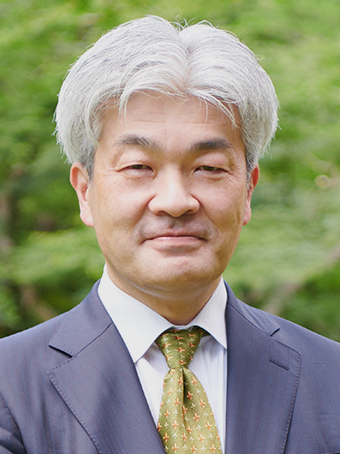
Director & Group Head, Economic Security
Kazuto Suzuki
 モーリシャス総選挙 2024年11月10日
モーリシャス総選挙 2024年11月10日
 U.S. Presidential Election November 5, 2024
U.S. Presidential Election November 5, 2024
 プエルトリコ総選挙 2024年11月5日
プエルトリコ総選挙 2024年11月5日
 Moldova Presidential Election October 21, 2024 (First); November 3, 2024 (Second)
Moldova Presidential Election October 21, 2024 (First); November 3, 2024 (Second)
Commentary
On November 3rd, Moldova held a run-off vote for its presidential election (a 4-year term, with no third term allowed). The pro-Western incumbent president, Maia Sandu, was re-elected with 55% of the votes. The run-off became necessary after no candidate secured a majority in the first round of voting on October 20th. The two candidates in the run-off were President Sandu, who received the most votes in the first round, and Alexandr Stoianoglo, a former Prosecutor General supported by the pro-Russian Socialist Party of Moldova, who came in second.
Alongside the first-round vote, a national referendum was held to decide whether EU accession should be included in the Constitution. The referendum narrowly passed, with 50.46% voting in favor and 49.54% against. President Sandu, a strong advocate for EU accession by 2030, has been vocal in her opposition to Russia's invasion of Ukraine and has implemented policies to reduce Moldova’s energy dependence on Russia. However, these pro-EU and anti-Russian policies have also contributed to rising energy prices and inflation, fueling domestic dissatisfaction.
Domestically, President Sandu's support in polls was slightly outpaced by that of Stoianoglo, reflecting this public discontent. However, strong backing from expatriate voters ultimately secured her reelection by a narrow margin.
Notably, multiple allegations have emerged claiming that Russia engaged in disinformation campaigns and large-scale vote-buying during both the presidential election and the national referendum, though the Russian government denies these accusations.
Despite the close results, it is significant that the national referendum approving EU accession passed, and the pro-EU president was reelected.

Research Fellow
Yusuke Ishikawa
 Ghanaian General Election December 7, 2024
Ghanaian General Election December 7, 2024
 Botswana general election October 30, 2024
Botswana general election October 30, 2024
Commentary
In the Botswana General Election held on October 30th, the ruling Botswana Democratic Party (BDP), which had been in power for six decades, was defeated and replaced by the opposition Umbrella for Democratic Change (UDC). Among the 69 seats, BDP won only 4 seats (a decrease of 34), while UDC secured 36 seats (an increase of 28). The Botswana Congress Party (BCP) garnered 15 seats, and the right-wing Botswana Patriotic Front (BPF) won 5 seats.
In Botswana's parliamentary system, similar to that of South Africa, the president is elected by the parliament. The recent election resulted in a significant regime change, with Duma Boko, leader of the Umbrella for Democratic Change (UDC), succeeding President Mokgweetsi Masisi of the Botswana Democratic Party (BDP). Renowned as the most established democracy on the African continent, Botswana demonstrated its democratic maturity as President Mokgweetsi Masisi graciously accepted the election results and pledged a peaceful transition of power, despite his extended tenure in office.
The outcome of the recent election is believed to have been influenced by growing dissatisfaction with economic issues, including an economic growth rate limited to just 1%. This discontent has been further fueled by the decline in diamond prices, which account for three-quarters of Botswana's exports, partly due to improvements in the quality of synthetic diamonds.

Director & Group Head, Economic Security
Kazuto Suzuki
 ウズベキスタン下院選挙 2024年10月27日
ウズベキスタン下院選挙 2024年10月27日
 House of Representatives general election (Japan) October 27, 2024
House of Representatives general election (Japan) October 27, 2024
 Bulgarian Parliamentary Election October 27, 2024
Bulgarian Parliamentary Election October 27, 2024
Commentary
On October 27th, Bulgaria held its seventh general election (unicameral system, 240 seats) in the past three years. In Bulgaria, former Prime Minister Boyko Borisov held office for nearly a decade, serving until 2021. Since 2021, however, Bulgaria has faced persistent political instability, with no party able to secure a majority. This has resulted in either failed attempts to form a government or short-lived administrations. The political instability is attributed to the deadlocks among established parties over issues such as economic development and anti-corruption measures, as well as the rise of new parties with extreme ideologies.
The center-right party "Citizens for European Development of Bulgaria (GERB)," led by former Prime Minister Borisov, gained 69 seats (an increase of one seat from the previous election). While GERB retained its position as the largest party, as it did in the June 2024 elections, it fell far short of the majority threshold. The coalition "We Continue the Change - Democratic Bulgaria (PP-DB)," led by the centrist party "We Continue the Change (PP)" under former Prime Minister Kiril Petkov, came in second. However, PP-DB failed to recover from the significant seat losses in the previous election, losing two additional seats and ending with only 37. The pro-Russian party "Revival," running under the slogan "Bulgaria First," retained its position as the third-largest party with 35 seats. Meanwhile, the newly formed party, "Morality, Unity, Honour (MECh)," which advocates for an immediate ceasefire in the Russia-Ukrainian war, made significant gains by winning 12 seats.
The latest election failed to resolve the fragmentation of Bulgaria’s parliament, posing significant challenges to the formation of another Borisov-led administration. The repeated failures to form cabinet and cycle of successive elections have only deepened public disappointment and eroded trust in established parties. This, in turn, has bolstered the support for pro-Russian and far-right parties, further complicating cabinet formation and exacerbating the vicious cycle.

Research Fellow
Yusuke Ishikawa
 Lithuania’s Parliament Elections October 27, 2024
Lithuania’s Parliament Elections October 27, 2024
Commentary
On October 27th, the run-off voting for Lithuania's parliamentary elections (a unicameral system combining single-seat constituencies and proportional representation) took place. Along with the first-round vote held on October 13th, the center-left opposition party, the Social Democratic Party of Lithuania (LSDP), secured 52 of 141 seats, becoming the largest party but falling short of a majority. Meanwhile, the center-right ruling party, Homeland Union – Lithuanian Christian Democrats (TS-LKD), led by Prime Minister Ingrida Šimonytė, experienced a significant decline in seats, dropping from 50 to 28.
Despite the economic achievements of the Šimonytė administration, including double-digit income growth and the lowest inflation rate among EU countries, public dissatisfaction with worsening healthcare services and widening economic disparities has gradually eroded its support.
The third-largest party is Nemuno Aušra, often described as an emerging populist party, which secured 20 seats. However, the LSDP has ruled out forming a coalition with Nemuno Aušra. Instead, it is expected to establish a coalition government with the center-left party, the Union of Democrats 'For Lithuania' (DSVL, 14 seats), and the Lithuanian Farmers and Greens Union (LVŽS, 8 seats).
Even with the anticipated shift in power from the TS-LKD to the LSDP—should the coalition be successfully formed—there is little difference between the two parties in their policies on Russia and defense spending. Thus, Lithuania's firm stance toward Russia is unlikely to change.

Research Fellow
Yusuke Ishikawa
 ジョージア議会選挙 2024年10月26日
ジョージア議会選挙 2024年10月26日
Commentary
ジョージア議会選挙(定数150、比例代表制)が2024年10月26日に実施された。ジョージア選挙管理委員会の発表によると、投票率は60.20%であり、与党「ジョージアの夢」が53.93%の得票率で89議席を獲得して勝利した。与党が第一党となったという結果自体は、事前に行われた複数の世論調査ともおおむね整合的であった。一方で、非政権系の調査機関による出口調査では野党勢力の得票率が合計で与党を10%ほど上回っていたという結果が示され、その後の民間の調査会社による分析でも、世論調査に基づく統計的な推計値と実際の得票率との間に著しい乖離が確認された選挙区が一部に存在することが指摘されており、票の水増しが疑われている。また、票の買収疑惑も選挙監視団や現地NGOから相次いで報告された。
こうした指摘を踏まえ、選挙結果の正当性をめぐって疑問の声が強まっており、野党4党および親欧米派のサロメ・ズラビシュヴィリ大統領は、不正や選挙違反を理由に選挙結果を認めていない。選挙監視団も今回の選挙の正当性に重大な疑義があるとの見解を示しており、国内では大規模な抗議デモが相次いでいる。他方、強権的な統治を行うロシアのウラジーミル・プーチン大統領やハンガリーのオルバーン・ヴィクトル首相からは祝福の声が上がっている。
ソ連から1991年に独立したジョージアは、当初、欧州への回帰を目指しており、2008年にロシアがジョージアに軍事侵攻を行って以降はロシアとの国交を断絶してきた。しかし、近年は外交姿勢に変化がみられており、現政権はEUに批判的な態度を示すとともに、ロシアとの関係改善を目指しているが、EU加盟路線を破棄したわけではない。また、外国から資金提供を受ける団体を規制するいわゆる「外国の代理人」法やLGBTQ+の権利を制限する法案など、ロシアと類似した法制度の整備も進めてきた。こうした動きに対し、EUや米国はジョージアの政府高官や裁判官らを対象とした制裁措置を講じてきた。今回の選挙では「欧州かロシアか」、すなわちEUへの回帰の有無も主要な争点の一つとなったが、選挙結果はジョージアと欧州諸国との摩擦を解消する契機とはならず、選挙直後の10月28日にはイラクリ・コバヒゼ首相が2028年末までEU加盟交渉を停止すると表明するなど、EUとジョージアの関係の停滞やさらなる対立につながるものとなった。
 Austria September 29, 2024
Austria September 29, 2024
Commentary
In the Austrian general election held on September 29, the far-right Freedom Party of Austria (FPÖ) won 29.1% of the vote, narrowly defeating the center-right Austrian People's Party (ÖVP), led by Prime Minister Nehammer, to become the leading party. The FPÖ's anti-immigrant stance and its claim that elites are enacting policies that don't serve the interests of citizens likely drew support from voters seeking to overturn the status quo. The FPÖ, founded in the 1950s by former Nazi party members, predates most far-right parties. While the party has previously formed a coalition government with the ÖVP, this is the first time it has secured the top position in a national election. Its second consecutive victory, following the European Parliament election, further establishes its position as a major party challenging the ÖVP as well as center-left Social Democratic Party of Austria (SPÖ), which have often been involved in grand coalitions. This win also boosted momentum for Euroskeptic parties, such as Hungary's Fidesz and the Czech ANO, which have been strengthening ties in EU politics.
Since neither party achieved a majority, coalition negotiations are now underway. The ÖVP, now the second-leading party, holds a key role in these discussions. While the ÖVP’s immigration policies are relatively similar to those of the FPÖ, it has indicated that it will reject FPÖ leader Herbert Kickl's bid to become prime minister, though it has not ruled out a coalition with them. It remains to be seen whether the ÖVP will join forces with the SPÖ and the Austrian Greens, who hold fewer seats than the ÖVP, or whether it will pursue a coalition with the FPÖ while rejecting the appointment of Kickl as prime minister.

Research Fellow
Yusuke Ishikawa
 モザンビーク大統領・議会選挙 2024年10月9日
モザンビーク大統領・議会選挙 2024年10月9日
 チュニジア大統領選挙 2024年10月6日
チュニジア大統領選挙 2024年10月6日
Commentary
2024年10月6日、チュニジアで大統領選挙が実施され、現職のカイス・サイード大統領が90.69%の得票率で圧勝し、再選を果たした。今回の選挙は3名による争いであったが、選挙に先立ち多くの立候補が却下されたほか、7.4%の得票率で2位となった実業家で元国会議員のアヤチ・ザメル氏は、収監されたまま選挙戦を行うことを余儀なくされた。このように、選挙の公正性に疑念が呈される選挙となったこともあり、投票率は28.8%と低い水準となった。チュニジアは、2010~11年の「ジャスミン革命」を契機に民主化へと舵を切り、「アラブの春」の優等生とも言われてきた。しかし、サイード大統領は、新憲法制定への関与や保守的な主張を背景に支持を集め、2019年の選挙で当選し、就任後は2022年7月に大統領権限を強化する憲法改正を実施するなど、権力集中を進めてきた。反政権派の政治家や弁護士らが断続的に拘束される状況も続いており、こうした動きに対しては国際人権団体や欧州議会などから批判と懸念が示されている。スウェーデンの独立調査機関V-Dem研究所の民主主義指標でも、2010年以降「選挙民主主義」と分類されてきたチュニジアは近年大きく評価を落とし、最新の2024年版では「選挙権威主義」と位置づけられている。
 Sri Lanka Presidential Election September 22, 2024
Sri Lanka Presidential Election September 22, 2024
Commentary
In Sri Lanka's presidential election held on September 22, Anura Kumara Dissanayake of the leftist People's Liberation Front (JVP) won with approximately 42% of the vote, followed by Sajith Premadasa of the centrist United People's Power (SJB) with 33%. The incumbent center-right president, Ranil Wickremesinghe, was not re-elected. In Sri Lanka’s presidential election system, voters rank their first, second, and third choices, and if no candidate receives a majority of first-choice votes, second and third-choice votes are recounted to determine the winner. Thus, between the top two candidates, Dissanayake and Premadasa, Dissanayake ultimately won with a majority. This election marks the first time that a recount has been conducted in Sri Lanka to decide the winner.
Sri Lanka had endured a long civil war with the Tamil population, after which the Rajapaksa brothers, credited with ending the conflict, held political power. However, excessive loans from China and poor economic management, including inefficient infrastructure investments, led to economic collapse, and then President Rajapaksa fled the country. Ranil Wickremesinghe, tasked with stabilizing the crisis, managed to negotiate debt relief with the IMF and secure support from Japan and India. However, Wickremesinghe lost public support as his austerity measures increased the people's hardships. Dissanayake won the election by advocating for poverty elimination, anti-corruption measures, and a review of the debt agreement with the IMF and other countries. Although Dissanayake has stated he will adhere to the IMF agreement for the time being, debt repayment may become less of a priority as the government eases austerity and redirects wealth to the public. Additionally, while Dissanayake has distanced himself from China, which did not provide assistance during the 2022 economic crisis despite being a major creditor, a worsening fiscal situation may present China with an opportunity to reassert influence.

Director & Group Head, Economic Security
Kazuto Suzuki
 Jordan General Election September 10, 2024
Jordan General Election September 10, 2024
Commentary
Jordan underwent electoral reform in 2022, aiming to shift from tribal-centered politics to party politics, and the general election held on September 10 was the first under the new law. 41 of the 138 parliamentary seats were contested among the 30 approved political parties and a quota was set for female legislators at 15 to 18 seats. However, the remaining seats are heavily allocated to rural tribes, resulting in limited representation for politically active urban areas, particularly those with high concentrations of Palestinian refugees. With a voter turnout of 32.25%, the political arm of the Muslim Brotherhood, the Islamic Action Front (IAF), which previously held only five seats, made significant gains, winning 31 seats and emerging as the leading party, though it fell short of a parliamentary majority. The second-largest party, the moderate royalist National Charter Party (NCP), secured 21 seats, while the centrist liberal Eradah Party won 19 seats. This left 36 seats for various factions and 31 seats for independent parties, thus preserving the dominance of existing political parties. Under the current system, where the king retains strong powers, including appointing the prime minister and dissolving parliament, the parliament's role is limited. The IAF's success stemmed from its alignment with Muslim Brotherhood-affiliated organizations, which have ties to Hamas, an armed group in the Gaza Strip, and from organizing protests against Israel, thereby gaining support from the Palestinian population. Following the election, King Abdullah II dismissed Prime Minister Bisher Khasawneh and appointed Jafar Hassan as prime minister; however, the cabinet largely retained members from the previous administration, and the technocrat-focused governance structure saw little change.

Director & Group Head, Economic Security
Kazuto Suzuki
 アルジェリア大統領選挙 2024年9月7日
アルジェリア大統領選挙 2024年9月7日
 アゼルバイジャン総選挙 2024年9月1日
アゼルバイジャン総選挙 2024年9月1日
 Kiribati General Election August 14, 2024 (First); August 19, 2024 (Second)
Kiribati General Election August 14, 2024 (First); August 19, 2024 (Second)
 Venezuelan Presidential Election July 28, 2024
Venezuelan Presidential Election July 28, 2024
Commentary
Venezuela's presidential election on July 28 was won by Nicolas Maduro, who has held office since 2013, with 53.67% of the vote, according to the electoral commission. However, pre-election polls showed overwhelming support for the opposition candidate, Edmundo González Urrutia, and many countries have pointed to large-scale electoral fraud. Protests erupted in response, with the González camp independently monitoring polling stations and reporting 30.5% for Maduro and 69.5% for González. Maduro declined third-party election observers, such as those from the United Nations. In Venezuela, where the dictatorship of Hugo Chávez took hold in 1999 and Maduro has continued an authoritarian political system, the electoral commission has become part of this system, eroding election integrity. The country is experiencing hyperinflation reportedly at 2 million percent per year and faces economic collapse. Sanctions by the U.S. have blocked crude oil exports, Venezuela’s main revenue source, further compounding the economic crisis. Public dissatisfaction with the continued dictatorship with electoral fraud is mounting, and social unrest persists post-election. If police and military forces, which uphold security, decide to side with citizens, the future of the Maduro administration could be in jeopardy.

Director & Group Head, Economic Security
Kazuto Suzuki
 Rwanda Presidential Election July 15, 2024
Rwanda Presidential Election July 15, 2024
Commentary
Shortly after voting closed in Rwanda's presidential and general elections on July 15, provisional results were announced showing incumbent President Paul Kagame as the winner with 99.15% of the vote. The two candidates opposing him were also the opponents in the 2017 election, in which Kagame won by similar margins, with each receiving less than 1% of the vote. The Rwandan Civil War in 1994 led to an ethnic genocide, resulting in the loss of 800,000 citizens. Kagame, who ended the conflict, became the effective leader and has held the presidency since 2000. While he is credited with achieving an average economic growth rate of 7.2% between 2012 and 2022, Kagame also faces allegations, including the theft of minerals from the neighboring Democratic Republic of Congo, falsely exported as Rwandan products. The dictatorial regime has remained unchanged, with the elimination of any strong opposition candidates and the rejection of appeals by the courts. It will take some time before the results of the general election held on the same day are known.

Director & Group Head, Economic Security
Kazuto Suzuki
 Syrian Parliamentary Elections July 15, 2024
Syrian Parliamentary Elections July 15, 2024
Commentary
The Syrian parliamentary election was held on July 15th amid the ongoing civil war, but it only took place in areas controlled by the Assad administration, with 8,151 polling stations. Voting did not occur in regions governed by anti-government protesters in the northwest, areas controlled by the US-backed Syrian Democratic Forces in the northeast, or among the millions of refugees who have fled the country (expatriate voting is allowed only in presidential elections). Reports of fraud surfaced, including instances of individuals voting multiple times, and some polling station administrators faced lawsuits. Against this backdrop, voter turnout was 38%. All candidates from the Ba’ath Party, led by President Bashar al-Assad, were elected, securing 185 out of the 250 total seats. According to the constitution, President Assad can remain in power only until 2028, but it is possible that he may attempt to extend his rule by amending the constitution.

Director & Group Head, Economic Security
Kazuto Suzuki
 French General Election July 7, 2024
French General Election July 7, 2024
Commentary
In response to the rise of the far-right National Rally (French: Rassemblement National, RN), which became the largest party in the EU Parliamentary Election held in June, President Macron dissolved parliament and called for a general election. While his true intentions remain unclear, it is possible that this move was aimed at preventing the RN from winning the 2027 presidential and legislative elections. President Macron may have calculated that, even if the RN gains influence through this election, he can manage the party as long as he remains in office, thereby exposing its lack of governance capacity. In France, presidents are directly elected and remain in office even if they dissolve parliament. General elections are held in two rounds. Candidates are elected if they secure a majority in the first round; otherwise, a second round is held among those who receive more than 12.5% of the vote.
In the first round of voting on June 30th, the right-wing coalition led by RN garnered 33.21% of the vote, while the left-wing coalition, the New Popular Front (NFP)—which includes the far-left France Unbowed (French: La France Insoumise, LFI), the Socialist Party, and the Ecologists—received 28.21%. The centrist coalition (Ensemble), which includes Renaissance led by President Macron, secured 21.28%, and the center-right Republican Party gained 6.57%. Of the 577 constituencies, 76 candidates were elected outright in the first round. In the remaining 501 constituencies, there were 306 where three or more candidates received over 12.5% of the vote (compared to just 8 in the 2022 general election). Since the far-right RN was more likely to win in constituencies where votes were split between the centrist Ensemble and the left-wing NFP, the two groups agreed to cooperate. As a result, third-placed candidates from Ensemble (81) and the NFP (126) decided to withdraw in these races.
Despite these efforts, no coalition secured a majority: the NFP won 182 seats, Ensemble 168, and RN 143 (289 seats are needed for a majority in the 577-seat parliament). The Prime Minister is expected to come from the NFP, the largest group, but there is little room for compromise within the NFP itself, as tensions between the far-left LFI, the centrist-left Socialist Party, and the Ecologists remain high. As a result, it is believed that President Macron is aiming to form a broad coalition, ranging from the Socialist Party to the center-right Republican Party, while excluding LFI and the far-right RN. In any case, “cohabitation,” where the president and prime minister belong to different parties, seems inevitable, leading to political instability in France.

Director & Group Head, Economic Security
Kazuto Suzuki
 British General Election July 4, 2024
British General Election July 4, 2024
Commentary
The British general election was held on July 4th, marking the first since December 2019. It resulted in a landslide victory for the Labour Party, which secured a majority of seats, leading to a regime change. The UK Prime Minister had been unable to dissolve Parliament until the completion of the five-year parliamentary term due to the Fixed-term Parliaments Act 2011, which was enacted during the coalition government of the Conservative Party and Liberal Democrats. The act was abolished with the enactment of the Dissolution and Calling of Parliament Act 2022. This election was the first to be held after this abolition, following Prime Minister Rishi Sunak’s May 22nd announcement to dissolve Parliament and call for a national election. Public opinion polls had consistently shown the Labour Party leading the ruling Conservative Party by nearly 20% before the election. Reflecting these pre-election predictions, the Labour Party achieved a decisive victory, securing 412 seats—more than doubling its previous 176—while the Conservative Party faced a historic defeat, dropping from 365 seats to just 121. The rise of Reform UK, which garnered 14.3% of the overall vote but secured only 5 seats, contributed to the Conservatives’ losses. Reform UK, led by right-wing politician Nigel Farage, significantly eroded the Conservative vote. Additionally, the Scottish National Party (SNP), which had previously dominated in Scotland, suffered from a scandal, driving many centrist voters towards the Liberal Democrats (who secured 12.2% of the vote and 63 seats) and the Labour Party under Keir Starmer, who had shifted the party towards the center. Following the election, Prime Minister Starmer formed a new Labour government on July 5th, marking the first Labour administration in 14 years, since the tenure of Prime Minister Gordon Brown.
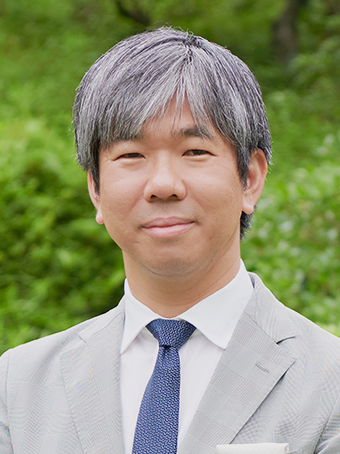
Group Head, Europe & Americas
Yuichi Hosoya
 Mongolia General Election June 29, 2024
Mongolia General Election June 29, 2024
 Iranian Legislative Election March 1, 2024
Iranian Legislative Election March 1, 2024
Commentary
The parliamentary (Majilis) elections in Iran held on March 1st have yet to be finalized due to 45 seats in constituencies, whose voter turnout below 20% being subject to re-vote, out of the total 490 seats. However, conservative factions have overwhelmingly secured a majority of the seats. Rather than the Iranian people choosing conservative factions, it is the result of the Guardian Council, which conducts eligibility reviews of candidates prior to elections (dominated by conservative clerics), disqualifying reformist and moderate candidates across the board. The course of events was similar to the 2021 presidential election, where Ebrahim Raisi became president as a result of the selection process by the Guardian Council. This repetition of patterns has led to disillusionment among the populace regarding the elections. The voter turnout was 41%, the lowest in history, with Tehran seeing a blank ballot rate of 25% among the votes cast, as well as other urban areas seeing similar trends. The “legitimacy of the system based on elections”, which has served as a compound structure of rule by Islamic clerics and republican governance, is being eroded in Iran.

Director & Group Head, Economic Security
Kazuto Suzuki
 サンマリノ議会選挙 2024年6月9日
サンマリノ議会選挙 2024年6月9日
 モーリタニア大統領選挙 2024年6月29日
モーリタニア大統領選挙 2024年6月29日
 Belgium General Election June 9, 2024
Belgium General Election June 9, 2024
Commentary
Amid multiple social cleavages of religion, class, and language, Belgium held a general election for the Chamber of Representatives of the Federal Parliament (150 seats) on June 9, 2024, in conjunction with the European Parliament elections. The New Flemish Alliance (N-VA), a center-right opposition party in the northern Flemish region (Dutch-speaking area) that advocates independence for the region, maintained its top position with 24 seats, while the liberal Reformist Movement (MR) won 20 seats in the southern Walloon region (French-speaking area), becoming the second-largest party.
The Northern far-right Vlaams Belang (VB) and the far-left Workers' Party of Belgium (PTB/PVDA) both increased their number of seats; however, VB won only 20 seats, fewer than the N-VA in the same region, while PTB/PVDA won 15 seats. It was not as much of a landslide as anticipated, with the far-right and far-left parties gaining two and three seats, respectively. On the other hand, the northern liberal party, the Open Flemish Liberals and Democrats led by Prime Minister De Croo, won only seven seats (down from 12 before the election), prompting De Croo to announce his resignation. The Ecolo party in the south, which had 13 seats before the election, only gained three seats, and the Groen party in the north lost two seats, down to six, reflecting a similar trend to the European Parliament elections. Belgium holds the world record for taking 541 days to form a cabinet after the 2010 elections. With social divisions further deepening, a lengthy cabinet formation is expected this time as well. The De Croo government, which was a coalition of seven parties, did not include the far-right and far-left parties, which had won slightly less than one-third of the seats, and were excluded from the government. Whether this politics of inclusion and exclusion will continue will be a focal point for the new government.

Research Fellow
Yusuke Ishikawa
 European Parliament Election June 6-9, 2024
European Parliament Election June 6-9, 2024
Commentary
The European Union (EU) Parliament elections were held from June 6 to 9, with preliminary results released progressively on June 10. The European People's Party (EPP), to which European Commission President Ursula von der Leyen belongs, increased its seats by 14 to 190, while the Progressive Alliance of Socialists and Democrats (S&D) saw a slight decrease. Among the G7 countries, with which Japan places particular emphasis on diplomatic ties, the centrist Renew Europe (RE), to which French President Emmanuel Macron belongs, experienced a sharp decline in seats. Conversely, the right-wing European Conservatives and Reformists Group (ECR Group), led by Italian Prime Minister Giorgia Meloni, gained seats. Although von der Leyen's center-right party, together with the centrist liberal and environmental parties, secured a pro-EU majority, her path to re-election as Commission President remains challenging.
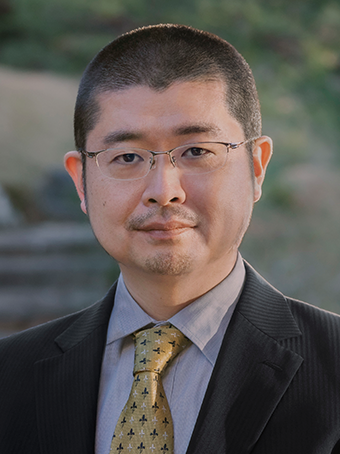
Senior Research Fellow
Hitoshi Suzuki
 Mexican Presidential and Congressional Election June 2, 2024
Mexican Presidential and Congressional Election June 2, 2024
Commentary
(Presidential election)
In the presidential election held in Mexico, Sheinbaum, the successor of President López Obrador, won with 59.36% of the vote, significantly outpacing the second-place candidate, Gálvez, who received 27.91% of the vote (voter turnout was 95.23%). The administration can be considered solid, with the possibility of amending the constitution through a two-thirds majority in both houses, where the ruling coalition, including the National Regeneration Movement (MORENA), holds significant seats. It could be said that Sheinbaum seamlessly inherited the high popularity of President Lopez Obrador who achieved economic growth and improved public services. served as the mayor of Mexico City, she won a safe victory with strong support from the people. As the first female president, the extent of leadership in Mexico, where male-centric values still linger, is a subject of interest. However, considering the high regard for public services tailored to women during her tenure as Mexico City mayor and her efforts in fostering an environment that led to the succession of female mayors, her political acumen is unquestionable.Under the leftist administration, fiscal conditions have deteriorated due to public investment, pension reforms, and favoritism towards state-owned enterprises. Furthermore, the challenge lies in maintaining the free trade agreement (USMCA, formerly NAFTA) with an increasingly protectionist United States and ensuring sustained economic growth. The biggest challenge is the issue of public safety, with instances such as 38 candidates being killed during the parliamentary and local elections held simultaneously with the presidential election. There are also several regions under the control of drug cartels and other criminal groups. Mishandling this issue could potentially destabilize the administration.
(General election)
In the parliamentary elections held concurrently with the presidential election, the coalition of the National Regeneration Movement (MORENA), the Green Party, and the Labor Party, to which Sheinbaum belongs, emerged victorious in both houses. In the Senate, they secured 82 seats (out of 128) just falling short of a two-thirds majority, while in the Lower House, they obtained 363 seats (out of 500), surpassing the two-thirds mark. They fell short of the two-thirds majority required for constitutional amendments in both houses of Congress. The opposition coalition, including the Institutional Revolutionary Party (PRI), which had held power for 71 years since the founding of the country until 2000, underperformed with 39 seats in the Senate and 111 seats in the Lower House, indicating a declining influence. In the concurrent local elections, an overwhelming victory for MORENA was witnessed, with the party winning in 24 out of 32 states, including the governorships of eight major states. MORENA is a center-left political party, where López Obrador, who does not speak English, represents a traditional left-wing ideology relying on labor unions and focused on wealth redistribution. In contrast, Sheinbaum, a scientist specializing in environmental issues with a degree from the United States, embodies a modern left-wing approach. The divide between these two, representing the old and new left, will likely surface in the future in a congress where a stable majority is held. Particularly, while income improvement through traditional left-wing largesse policies had garnered popularity, it has posed a significant burden on Mexican finances, making internal party consensus on fiscal policy management a crucial challenge. Furthermore, in these parliamentary elections, with 36 candidates assassinated and 175 polling stations closed due to security concerns, the situation demands urgent attention. The challenges facing the ‘unified government’ of MORENA, which controls the presidency and both houses of Congress, are significant.

Director & Group Head, Economic Security
Kazuto Suzuki
 Icelandic Presidential Election June 1, 2024
Icelandic Presidential Election June 1, 2024
Commentary
In the Icelandic presidential election on June 1st, businessman Halla Tómasdóttir triumphed over 11 candidates, including former Prime Minister Katrín Jakobsdóttir, to become the new president. The President of Iceland has the authority to veto legislation and refer it to a national referendum; however, this power has been traditionally exercised in limited cases, typically on contentious bills, and the role remains largely symbolic as a unifying national figurea symbol of national unity. Consequently, in Iceland, individuals with less political background, such as those from academia or private sector, often assume the presidency rather than career politicians. Ms. Tómasdóttir, now the second female president in Iceland’s history after a twenty-eight-year gap, brings a wealth of experience as the first female president of the Icelandic Chamber of Commerce. Since 2018, she has served as CEO of the international NGO ‘B-Team,’ focusing on workplace equality, climate change, and improving corporate governance and transparency.

Research Fellow
Yusuke Ishikawa
 マダガスカル議会選挙 2024年5月29日
マダガスカル議会選挙 2024年5月29日
 South African General Election May 29, 2024
South African General Election May 29, 2024
Commentary
At the heart of post-apartheid South African politics, the African National Congress (ANC), which had consistently secured a majority of seats, experienced its first-ever dip below the majority threshold in the past 30 years, marking a historic election. The election results saw the African National Congress (ANC) with 40.3%, the business-focused Democratic Alliance (DA) with 21.62%, the “Spear of the Nation (MK)” party, formed by former president Zuma after leaving the ANC, with 14.71%, and the Economic Freedom Fighters (EFF), leaning more nationalist and economically to the left compared to the ANC, with 9.47% of the votes. As a result, out of the 400 seats, the ANC secured 159 seats, the DA obtained 87 seats, MK won 58 seats, the EFF garnered 39 seats, and other parties claimed 57 seats. In South Africa, since the president is elected by Parliament, so President Ramaphosa, who has lost the majority, needs to form a stable coalition government to avoid the risk of impeachment. Increasing criticism towards the ANC can be attributed to chronic unemployment, income inequality, delays in infrastructure development, and the scandal revealing that President Ramaphosa, who emerged as a critic of former President Zuma’s corruption, had also hidden large sums of money in his home, resulting in a loss of trust from the public. If the ANC and DA were to form a coalition, the cost of policy alignment would be high, but there would be increased expectations for political reform.

Director & Group Head, Economic Security
Kazuto Suzuki
 Lithuania Presidential Election May 26, 2024
Lithuania Presidential Election May 26, 2024
Commentary
In the May 26 runoff election for Lithuania's president (five-year term, with a one-time re-election limit), incumbent President Gitanas Nausėda defeated Prime Minister Ingrida Šimonytė, who also contested in the 2019 presidential election, by a wide margin and was reelected with a record turnout of approximately 75%. Eight candidates, including both Nausėda and Šimonytė, ran in the first round, including an anti-Semitic politician and one opposing support for Ukraine; however, such candidates did not receive significant support and dropped out after the first round. Additionally, there was little difference between President Nausėda and Prime Minister Šimonytė on security matters, a key issue in the election. Both held similar stances on the Russian-Ukrainian war and defense spending, so this did not become a point of contention in the deciding vote, favoring the incumbent President Nausėda. As a result, the runoff election remained calm, largely unaffected by populism or Russian disinformation.
In relation to East Asia, President Nausėda's proposal to change the name of the Taiwan Representative Office to improve relations with China became a hot topic during the campaign. While this is not the first time he has made such a proposal, it remains to be seen whether there will be any shift in Lithuania's hard-line stance toward China in the future.

Research Fellow
Yusuke Ishikawa
 Dominican Republic Presidential Election May 19, 2024
Dominican Republic Presidential Election May 19, 2024
 北マケドニア総選挙・大統領選挙 2024年5月8日
北マケドニア総選挙・大統領選挙 2024年5月8日
 チャド大統領選挙 2024年5月6日
チャド大統領選挙 2024年5月6日
 Panama Presidential Election May 5, 2024
Panama Presidential Election May 5, 2024
 トーゴ総選挙 2024年4月29日
トーゴ総選挙 2024年4月29日
 Maldivian General Election April 21, 2024
Maldivian General Election April 21, 2024
Commentary
The Maldivian parliamentary election held on April 21st is expected to result in a landslide victory for the People’s National Congress (PNC), the party of President Muizzu, who won the presidential election last October, with the PNC securing 71 out of 93 seats. On the other hand, the opposition Maldivian Democratic Party (MDP) is expected to secure only 12 seats. The voter turnout was 72.9%, significantly lower than the 82% turnout in the previous election in 2019. President Muizzu, for the first time as president of the Maldives, visited China before India and seemed to prioritize relations with China over India. Additionally, he pursued policies aimed at severing ties with India, such as expelling Indian military personnel stationed in the Maldives (however, after negotiations with India, a resolution was reached with the replacement of military personnel with technicians for maintenance of rescue helicopters). This election helped further strengthen his stance and policies aimed at enhancing ties with China. The Democratic Party, led by pro-India former President Nasheed, who defected from the MDP, failed to secure any seats. Similarly, the new party founded by former President Yameen, who is a mentor to President Muizzu, also failed to win any seats. With this outcome, authority is now concentrated in the hands of President Muizzu, leading to increased dependence on China and a higher likelihood of escalating tensions with India.

Director & Group Head, Economic Security
Kazuto Suzuki
 Indian General Election April 19-June 1, 2024
Indian General Election April 19-June 1, 2024
Commentary
India's general elections, held in seven rounds from late April to early June, were, contrary to prior expectations, a major defeat for the ruling Indian People's Party (BJP). The BJP lost its majority, reducing its number of seats from 303 before the election to 240 (with a total of 543 seats and a majority threshold of 272). Notably, the BJP lost ground in Uttar Pradesh, the most populous state, dropping from 62 seats to 33, and in Maharashtra, where Mumbai is located, from 23 to 9 seats. Despite this, the Modi government will enter its third term, retaining a majority when including the BJP's coalition partners.
The Modi administration obstructed the opposition's election campaign with strong-arm tactics, including the arrest (later bailed out) of Arvind Kejriwal, leader of the Common Man’s Party (AAP), a rival in the Delhi metropolitan area. Rahul Gandhi, the de facto leader of the largest opposition party, the Indian National Congress (INC), was disqualified from the lower house of India's Parliament before the election (later reinstated by the Supreme Court). The INC gained 99 seats, an increase of 47, while the AAP won three seats, gaining two.
Although the Modi administration has enacted repressive measures against Muslims and implemented forceful agrarian reforms with broad public support, economic growth has primarily benefited a small portion of the population. Persistent dissatisfaction with unresolved issues of inflation and unemployment appears to be the main reason for the BJP’s defeat. The electorate’s rejection of the increasingly authoritarian Modi administration is a testament to the resilience of Indian democracy.

Director & Group Head, Economic Security
Kazuto Suzuki
 Croatian General Election April 17, 2024
Croatian General Election April 17, 2024
Commentary
In 2024, Croatia is facing three major elections: parliamentary, the European Parliament, and presidential elections. The first of these, the parliamentary election, took place on April 17th. The general election saw a competition between the Croatian Democratic Union (HDZ) led by incumbent pro-EU Prime Minister Plenković, and the opposition Social Democratic Party (SDP) led by former Prime Minister and President Milanović, who held a ceremonial role as president. Milanović’s SDP took a stance against supporting Ukraine, narrowing the gap between the two parties. According to the preliminary results, while the HDZ secured 61 seats (out of 151 in the unicameral parliament), decreasing its seats by 5, the SDP gained 42 seats, with an increase of 1 seat. The Homeland Movement, the emerging right-wing third party secured 14 seats with a decrease of 2 seats. Overall, the electoral landscape did not undergo significant changes. However, considering that Plenković’s HDZ failed to secure a majority in the 2020 general election and has been barely maintaining the government by garnering support from smaller parties, it won’t be easy to make up for the lost 5 seats through coalition with other parties. Furthermore, in the general election, the main focus shifted from policies on EU and Ukraine to domestic economic stagnation and repeated corruption allegations against the ruling party. This highlighted the intensity of criticism directed at the incumbent Plenković administration. The type of coalition the administration will form and the domestic measures it will take are likely to influence the European Parliamentary elections in June and the presidential elections in December.

Research Fellow
Yusuke Ishikawa
 Solomon Islands General Election April 17, 2014
Solomon Islands General Election April 17, 2014
Commentary
In the Solomon Island general election held on April 17th, the pro-China political party ‘OUR Party’ led by Prime Minister Sogavare secured 15 seats out of 50 and became the largest party, while it failed to reach a majority. On the other hand, the opposition parties critical of China’s involvement, including the Solomon Islands Democratic Party, the Solomon Islands United Party, the Kadere Party, the Umi for Change, and the Democratic Alliance, collectively held 20 seats. Coalition negotiations between the ruling and opposition parties have intensified over independent members of parliament. The voter turnout was 86.17%, indicating the high level of interest and engagement in the election. The point of contention was signing of a military agreement with China, but with the ruling party being unable to secure a majority, reaching such an agreement has become more challenging. It could be said that the election demonstrated strong opposition to Prime Minister Sogavare’s decision of severing ties with Taiwan and normalizing relations with China, along with receiving substantial assistance from China.

Director & Group Head, Economic Security
Kazuto Suzuki
 South Korean General Election April 10, 2024
South Korean General Election April 10, 2024
Commentary
The South Korean general election held on April 10th, with 300 seats at stake, saw the progressive opposition party, the Democratic Party of Korea, including its affiliated parties, achieve a landslide victory, further widening the division between the ruling party and the majority in the National Assembly. The Democratic Party of Korea garnered a majority with 175 seats (156 seats before the election), while the People Power Party, the minor ruling party, suffered resounding defeat securing only 108 seats (115 seats before the election). The Rebuilding Korea Party, the progressive party led by Mr. Cho Kuk, showed its presence as third power garnering 12 seats. In the election campaign, headwinds blew against the ruling party due to issues such as rapid inflation countermeasures, increasing medical school quotas in South Korea, and government scandals. The opposition fell short of the two-thirds majority required to impeach the president, but they are now capable of swift processing of billsin which the ruling and opposition parties confront. The ruling party had been below the majority threshold since before the election, and it was no longer able to prevent the opposition’s bills from being introduced independently, as it had hoped. The election results did not show any signs of rapid changes in the diplomatic and security policies of the Yun administration. However, if President Yun’s influence diminishes and the ruling party is unable to pass bills or budgets, the need to compromise with the progressive faction will become inevitable in many instances. As a result, there is a high possibility that the momentum behind diplomatic and security policies could be weakened.
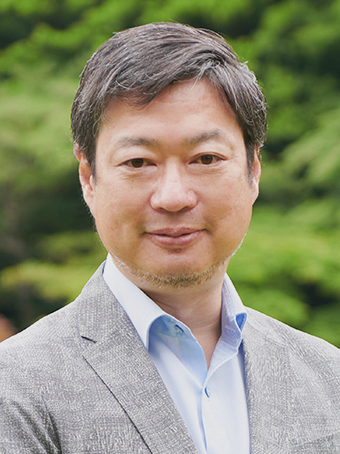
Managing Director (Representative Director), International House of Japan
Ken Jimbo
 Slovakian Presidential Election April 6, 2024
Slovakian Presidential Election April 6, 2024
Commentary
On April 6th, the runoff vote for the presidential election was held in Slovakia. In the initial round of voting held on March 23rd, none of the candidates were able to secure a majority of support. There were voices predicting a close runoff between the top two candidates, with Ivan Korčok, a pro-Western figure and former Minister of Foreign and European Affairs, surpassing Peter Pellegrini, a former Prime Minister aligned with Prime Minister Fico, in the first round. However, it was Pellegrini who emerged victorious, securing approximately 53% of the vote, while Korčok remained at around 47%. Pellegrini has favored a “war or peace” rhetoric reminiscent of Hungary’s Orbán government, by accusing Korčok of being a “warmonger” and “wanting to drag Slovakia into the war”. Pellegrini’s victory, who advocated for “peace,” lent credence to the Fico government’s call for halting military support to Ukraine. The voter turnout in the runoff election was 61%, higher than the initial round (56%), and it is believed that Pellegrini gained additional support from the far-right by inciting fears of war. Furthermore, the President of Slovakia holds the authority of appointment of ministers and judges and veto over bills, thus playing a role of reining the government to some extent, despite that being a limited power. From a viewpoint of democracy, future intervention in the judiciary and media by the Fico administration will be a cause for concern.

Research Fellow
Yusuke Ishikawa
 クウェート国民議会選挙 2024年4月4日
クウェート国民議会選挙 2024年4月4日
Commentary
2024年4月4日、クウェートで国民議会選挙が実施された。国民議会は定数65議席で構成され、このうち50議席が選挙によって、15議席は大臣が議員として任命される。クウェートではとりわけ2020年以降、首長および首長が任命する政府と議会との対立を背景に、議会解散に伴う総選挙が相次いでおり、今回の選挙は過去4年間で4回目となる。しかし、議席を争った50議席のうち約8割にあたる39人が再選され、政府に反対する勢力が引き続き過半数を占めたことから、選挙後の議会構成は改選前から大きく変化しなかった。議席を減らしたのはムスリム同胞団の系列であるイスラム憲法運動と独立諸派であった。投票率は62.10%であった。
クウェートは石油資源に恵まれた君主国家でありながら、ペルシャ湾岸地域においては例外的に多元主義的な政治体制を有し、政治参加も比較的活発で自由であると評価されてきた。すべての議席が選挙で選ばれるわけではないものの、多くの議員は国民の直接選挙によって選出され、議会での質問権や決議を通じて首長に対し一定の説明責任を求めることが可能であった。
しかし、今回の選挙結果を受け、首相は選挙から約5週間後の5月10日に国民議会を解散し、議会解散後2カ月以内に総選挙を実施しなければならないと定めた憲法の条項の適用を停止した。これにより、今後4年間は議会選挙が行われず、首長が勅令によって統治する体制へと移行することになった。立法府と行政府の対立が激化する中で、首長が議会の機能を停止するというより強力な手段に踏み切ったのは、1976年および1986年以来、数十年ぶりのことである。こうした措置は一時的な例外にとどまるのか、それともクウェート政治における民主主義の後退を恒常化させる転換点となるのか。今後の行方が注視される。
 Senegalese Presidential Election February 25, 2024 (←March 24, 2024)
Senegalese Presidential Election February 25, 2024 (←March 24, 2024)
Commentary
The Senegalese Presidential Election, which was scheduled to be held on 25 February 2024, was plunged into chaos when the incumbent president Sall suddenly announced the indefinite postponement of the election. However, since the Constitutional Council deemed the postponement of the election unconstitutional, the election was held on 24 March, and the opposition candidate Bassirou Diomaye Faye won with 54.28%of the votes. Amadou Ba, the successor of Sall, was soundly defeated, securing only 35.79%of the votes. The situation is gradually stabilizing as Faye assumed office on April 2nd. In Senegal, which has been considered one of the most stable democracies in West Africa, it was questioned whether the country would transition from presidential authoritarianism due to the tyranny of the president. However, the intervention of the judiciary proved effective, and the acceptance of defeat by President Sall’s coalition in the election demonstrated the resilience of Senegal’s democracy.

Director & Group Head, Economic Security
Kazuto Suzuki
 Russian Presidential Election March 17, 2024
Russian Presidential Election March 17, 2024
Commentary
In Russia, the presidential election took place from March 15th to 17th, 2024. According to the Central Election Commission, Vladimir Putin, the incumbent President, secured 76.27 million votes, confirming his victory. The voting percentage was 87.28%, and the voter turnout was 77.49%, both of which are the highest on record.
In the 1993 constitution, the presidential term was set at four years with a maximum of two consecutive terms. However, with the constitutional amendment in 2008, the term was extended to six years, and further amendments in 2020 allowed former presidents to serve up to three terms. As a result, President Putin could potentially remain in office until 2036 at maximum. In this presidential election, the voting period was extended to three days, longer than usual, and electronic voting was introduced in an effort to increase voter turnout. However, candidates who clearly criticized the government were not allowed to run, and ultimately only four candidates (the lowest number in history) were permitted to stand for election. The voting percentage for Putin was 87.28% while those of other candidates were only approximately 4%, resulting in the expected “landslide victory” for incumbent President Putin.
In the election, voting was conducted in the four eastern and southern provinces of Ukraine occupied by Russia, with reports indicating that “around 90%” of the vote went to President Putin. However, as there were reports indicating that voters were coerced by armed groups, Chief Cabinet Secretary Yoshimasa Hayashi strongly criticized the situation as “a clear violation of international law that cannot be tolerated under any circumstances.”
Indeed, the Russian economy has shown positive growth of a 3.6% increase in 2023, attributed to factors such as increased military spending, a housing bubble, and expansion of natural resource exports. It is likely that these favorable economic indicators have garnered some level of approval from the Russian populace. At the same time, as constraints on freedoms, such as freedom of speech, have intensified even further due to the war, it is challenging to determine to what extent these figures of voter turnout and voting percentage truly reflect the reality.

Group Head, Europe & Americas
Yuichi Hosoya
 Portuguese General Election March 10, 2024
Portuguese General Election March 10, 2024
 Iranian Legislative Election March 1, 2024
Iranian Legislative Election March 1, 2024
Commentary
The parliamentary (Majilis) elections in Iran held on March 1st have yet to be finalized due to 45 seats in constituencies, whose voter turnout below 20% being subject to re-vote, out of the total 490 seats. However, conservative factions have overwhelmingly secured a majority of the seats. Rather than the Iranian people choosing conservative factions, it is the result of the Guardian Council, which conducts eligibility reviews of candidates prior to elections (dominated by conservative clerics), disqualifying reformist and moderate candidates across the board. The course of events was similar to the 2021 presidential election, where Ebrahim Raisi became president as a result of the selection process by the Guardian Council. This repetition of patterns has led to disillusionment among the populace regarding the elections. The voter turnout was 41%, the lowest in history, with Tehran seeing a blank ballot rate of 25% among the votes cast, as well as other urban areas seeing similar trends. The “legitimacy of the system based on elections”, which has served as a compound structure of rule by Islamic clerics and republican governance, is being eroded in Iran.

Director & Group Head, Economic Security
Kazuto Suzuki
 ベラルーシ下院選挙 2024年2月25日
ベラルーシ下院選挙 2024年2月25日
Commentary
2024年2月25日、ベラルーシ共和国で下院選挙(定数110、小選挙区制)が実施された。選挙後に大規模なデモを引き起こした2020年の大統領選挙以降、同国で初めての国政選挙であった。選挙の結果、長年にわたりアレクサンドル・ルカシェンコ政権を支持し、2023年に政党として登録されたベラヤ・ルス(Belaya Rus)党が51議席を獲得し、無所属候補が40議席で続いた。残る議席は、他の体制支持政党が分け合う形となった。
ベラルーシ議会は憲法上一定の権限を有するものの、実際には大統領の政策を追認する役割にとどまっており、従来は市民団体や労働団体の推薦を受けた無所属議員が約90~100議席を占める傾向にあった。しかし、今回の選挙では無所属議員が大幅に議席を減らし、ベラヤ・ルス党が単独で半数弱の議席を獲得する結果となった。今回の選挙では、ベラヤ・ルス党を含む体制支持の政党4党と、政権に忠誠を誓う一部の職場や社会団体を代表する無所属の候補者に限られ、反体制勢力が排除された選挙となった。2025年の大統領選挙を見据え、強権的な手段を通じて体制の盤石化を図ったものとみられる。
 Indonesian Presidential Election February 14, 2024
Indonesian Presidential Election February 14, 2024
Commentary
The Indonesian Presidential election was held on February 14th, and while the election results are not yet finalised, Defence Minister Prabowo is considered likely to win with 60% of the votes (based on aggregation from major private surveys), pulling ahead of the two candidates. Prabowo stated to inherit the policy from the current Joko administration, which has maintained high approval ratings. He gained broad support by advocating for a path of economic growth, job creation, and advanced industrial policies. For the parliamentary election held on the same day, there is a possibility for Prabowo’s Golkar party to lose its spot as a major party and become a minority ruling party. Prabowo, who once faced suspicion of human rights violations during the Suharto regime, desperately cemented his power by adopting a more moderate stance during the campaign and seeking to leverage Joko’s popularity by nominating his son as vice-presidential candidate. As there is also lingering resentment over the nomination of presidential candidates towards the Indonesian Democratic Party of Struggle, which emerged as the largest party in the parliamentary elections, the coalition-building that Prabowo aims for will not likely proceed smoothly. While the Indonesian democracy has been established as a response to the 1997 financial crisis, its implementation is gradually becoming unstable.

Managing Director (Representative Director), International House of Japan
Ken Jimbo
 Finnish Presidential Election February 11, 2024
Finnish Presidential Election February 11, 2024
Commentary
In the Finnish presidential election’s runoff vote held on February 11th after Finland acceded to NATO, Alexander Stubb, former Prime Minister of the centre-right National Coalition Party, defeated Pekka Haavisto, former Foreign Minister of the left-wing Social Democratic Party, to be elected as the new President.
Finland is operated under a parliamentary system of government with President serving as the head of state. The President’s term is 6 years and can be re-elected for up to 2 terms. Former Prime Minister Stubb will become the 13th President, succeeding the current President Niinistö, who was in office for 12 years. Finland shares a 1,300 kilometres border with Russia and presents a traditional anti-Russian sentiment. Under the previous presidency, the conventional neutral diplomatic stance changed,. However, in the runoff election, both right-leaning former Prime Minister Stubb and left-leaning former Foreign Minister Haavisto shared a pro-NATO stance of continuing the so-called ‘Niinistö path’ that materialised the accession to NATO. Former Prime Minister Stubb had taken a rather assertive stance towards Russia, particularly regarding issues such as NATO’s nuclear sharing arrangements. Mr. Stubb is a political scientist who earned his PhD at the London School of Economics (LSE). He is also an internationally oriented figure who has served as Foreign Minister of Finland, and a member of the European Parliament, as well as holding a professorship at the European University Institute (EUI).

Group Head, Europe & Americas
Yuichi Hosoya
 Pakistan General Election February 8, 2024
Pakistan General Election February 8, 2024
Commentary
The general elections in Pakistan held on February 8th saw independent candidates affiliated with the Pakistan Tehreek-e-Insaf (PTI), led by former Prime Minister Khan, securing 97 seats. The Pakistan Muslim League Nawaz (PMLN), led by former Prime Minister Sharif, won 76 seats, while the Pakistan Peoples Party (PPP), led by the son of former Prime Minister Bhutto, secured 54 seats. (The total number of seats is 265).
Although none of them were able to secure a majority, it is likely that the PMLN and PPP will form a coalition, allowing Sharif to return as prime minister. Pakistan’s military wields significant influence in politics, and to favor the PMLN, which is supported by the military, former Prime Minister Khan was convicted in court and forced to campaign from prison. Additionally, participating in elections under the PTI name was prohibited and even the use of a cricket bat in election campaigning, which represents Khan, a nationally revered cricketer, was banned. Despite such thorough measures, the group affiliated with the PTI still emerged as the largest party. This outcome can be attributed to factors such as societal divisions and resentment towards military intervention. However, amidst numerous challenges, including the recovery from widespread flooding across the country, a new government will find itself in a situation where it must navigate unstable governance.

Director & Group Head, Economic Security
Kazuto Suzuki
 Azerbaijan Presidential Election February 7, 2024
Azerbaijan Presidential Election February 7, 2024
Commentary
President Aliyev, who achieved victory in last year’s Nagorno-Karabakh conflict and resolved the long-standing territorial issue by incorporating the region into Azerbaijan on January 1st, won the election with 92% of the votes. Formally, there were seven candidates running, but it was essentially an election heavily inclined towards a vote of confidence in President Aliyev. Since assuming office in 2003, President Aliyev has won five presidential elections. With the constitutional amendment in 2016 extending the presidential term to seven years, his presidency will extend into a long-term tenure until 2031. Azerbaijan, leveraging its wealth derived from abundant oil and natural gas resources, allocated substantial funds to its military, and relied on drones (the Bayraktar TB2) imported from its close ally Turkey to seize victory in the conflict against Armenia. As a result, Azerbaijan’s influence in the Caucasus region has grown, while Russia’s influence, which ended up abandoning Armenia, has diminished. Such geopolitical shifts and President Aliyev’s reinforcement of natural gas exports to Europe due to sanctions against Russia solidified his support.

Director & Group Head, Economic Security
Kazuto Suzuki
 El Salvador Presidential Election February 4, 2024
El Salvador Presidential Election February 4, 2024
Commentary
In the presidential election held on February 4th, the incumbent president of El Salvador, Nayib Bukele, was re-elected with overwhelming support. He had changed the interpretation of the constitution, which stipulates a single term of 5 years for the presidency, to allow for re-election by dismissing judges of the Constitutional Court. President Bukele, who proudly refers to himself as the “world’s coolest dictator,” has gained popularity among the citizens for his authoritarian methods in restoring security, such as arresting gang members without warrants. Yet concerns are also voiced about his approach, as many innocent individuals have been arrested on false charges under his security policies. His initiatives, such as adopting Bitcoin as legal tender earlier than any other country in the world so as to break away from US dependency and facilitating remittances from migrant workers, which are crucial for the Salvadoran economy, have not resonated well with the citizens. The election left an impression of ongoing challenges to democracy and the rule of law, as it seemed to draw inspiration from the authoritarian security measures previously implemented by Philippine President Duterte and introduce mechanisms to maintain power beyond the provisions of the constitution, similar to the approaches taken by President Xi Jinping and President Putin.

Director & Group Head, Economic Security
Kazuto Suzuki
 Tuvalu General Election January 26, 2024
Tuvalu General Election January 26, 2024
Commentary
In Tuvalu's general election on January 26, Prime Minister Kausea Natano, who led efforts to maintain relations with Taiwan and signed a security agreement with Australia, lost his seat. In contrast, Minister of Finance Seve Paeniu, a prime ministerial candidate advocating for a review of diplomatic relations, secured his seat unopposed. Former Prime Minister Enele Sopoaga, who supports maintaining ties with Taiwan and repealing the security agreement with Australia, also retained his seat.
Tuvalu lacks political parties, with coalitions of legislators forming on an issue-by-issue basis, so the election of a prime ministerial candidate is a significant focal point. Ultimately, newcomer Feleti Teo, with substantial experience in fisheries-related international organizations, won the prime minister's seat. He plans to continue the policy of maintaining relations with both Taiwan and Australia.

Director & Group Head, Economic Security
Kazuto Suzuki
 コモロ大統領選挙 2024年1月14日
コモロ大統領選挙 2024年1月14日
 Taiwan presidential and legislative election January 13, 2024
Taiwan presidential and legislative election January 13, 2024
Commentary
In the presidential election, Lai Ching-te of the ruling Democratic Progressive Party (DPP) won, defeating the main opposition Kuomintang (KMT) candidate, Hou Yu-ih, and the third-party Taiwan People’s Party’s candidate, Ko Wen-je. Lai appealed for the continuation of the policies of the Tsai administration and garnered support from a wide range of voters who wanted to maintain the current status quo. The efforts of Hou and Ko to unify the opposition candidates before filing their candidacies failed, resulting in the inability to consolidate support from their respective voter bases. On the other hand, the legislative elections for the Legislative Yuan (with 113 seats) held concurrently with the presidential election saw the KMT winning 52 seats (an increase from 37 before the election), becoming the largest party. Meanwhile, the DPP saw a significant decrease in seats, securing only 51 seats (down from 62), and falling to the second-largest party. In the legislative elections, factors such as inflation, including rising housing prices, and a desire to check long-term incumbency are believed to have influenced the decision of Taiwanese voters. As a result, although the DPP emerged victorious in the presidential election, it became a minority party in the Legislative Yuan. This means that the DPP government will be forced to compromise with the opposition parties on budget proposals and legislations.

Managing Director (Representative Director), International House of Japan
Ken Jimbo
 Bhutan General Election Januart 9, 2024
Bhutan General Election Januart 9, 2024
Commentary
In January 2024, Bhutan, a small South Asian country bordering India and China, held a general election for the National Assembly. The People's Democratic Party (PDP), led by Tshering Tobgay, won 30 of the 47 seats in the assembly. The former ruling party, the Bhutan United Party (DNT), ranked only fourth in the preliminary elections held in November, forcing it to step down before the main election. The January main election was a contest between the PDP and the Bhutan Tendrel Party (BTP), which had secured the top two positions in the preliminary round, resulting in the PDP returning to power for the first time in five years.
Bhutan is known for its Gross National Happiness (GNH), yet recent social challenges, such as a sluggish economy and youth unemployment, have raised expectations for the Tobgay administration's economic policies. Tobgay is recognized as a pro-India figure, and economic cooperation with India is anticipated to increase. On the other hand, it will face a more strained relationship with China, as tensions are expected to rise due to the ongoing territorial dispute over the Doklam region along their shared border. (Takahiro Kamisuna)

Director & Group Head, Economic Security
Kazuto Suzuki
 The Bangladesh General Election January 7, 2024
The Bangladesh General Election January 7, 2024
Commentary
The Bangladesh Nationalist Party (BNP), the main opposition party, boycotted the Bangladesh general election, leading to a victory for the ruling Awami League (AL) and the continuation of the incumbent Hasina administration. The BNP had protested against political repression by the government, including arrests of opposition activists, and had engaged in riots and destructive actions before the election. While there were no major disturbances on the election day, the opposition’s boycott aimed to cast doubt on the legitimacy of this election. In fact, while voter turnout was nearly 80% in the previous election, it was only around 40% (and possibly even lower) this time, according to election authorities. Despite significant economic growth in Bangladesh, inflation and price increases in food items have affected people’s lives, particularly due to the war between Russia and Ukraine. There is growing discontent among the populace. The task of governing for the Hasina administration may become even more challenging in the future.

Director & Group Head, Economic Security
Kazuto Suzuki
Research
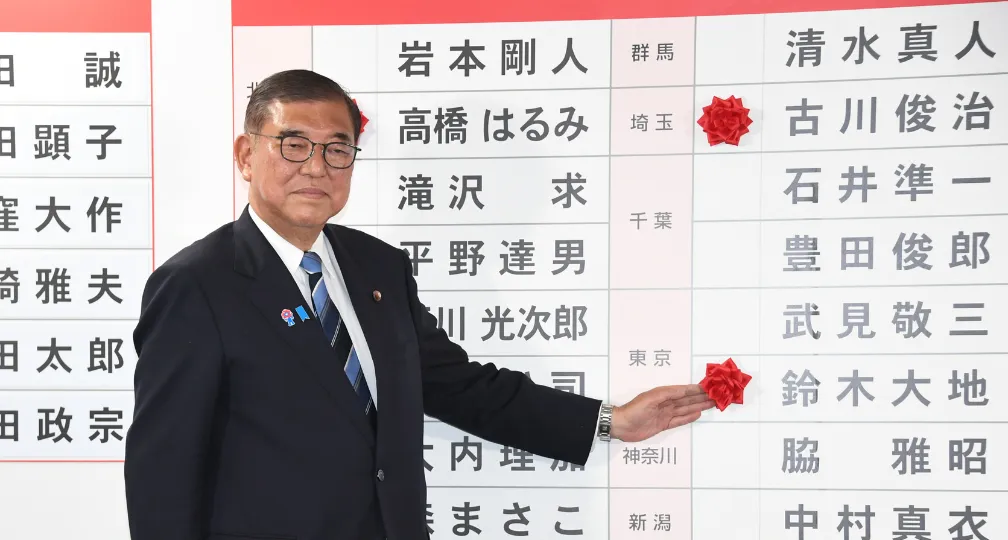
Japan's upper house (House of Councillors) el…

Research Fellow
Yusuke Ishikawa
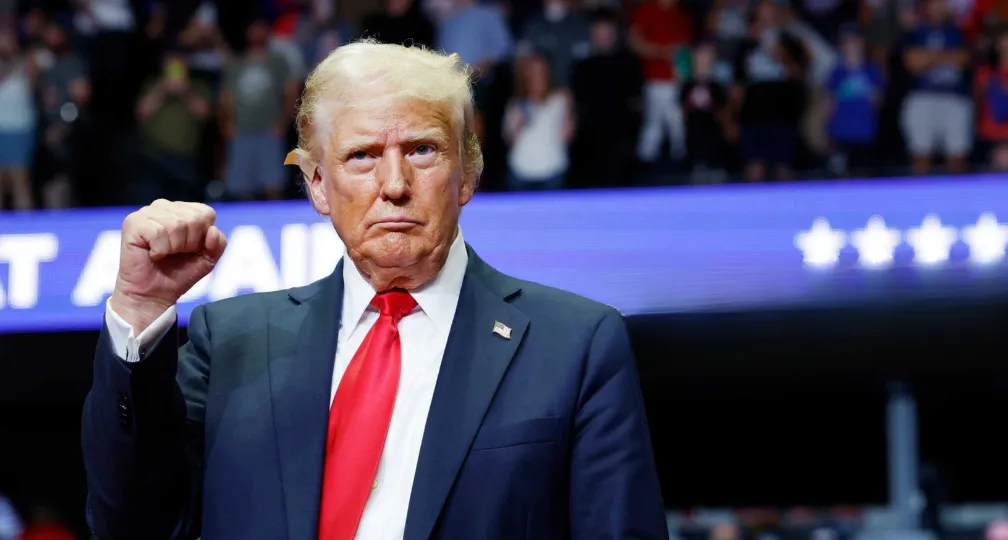
Latest Restrictions on Tech Exports to China …
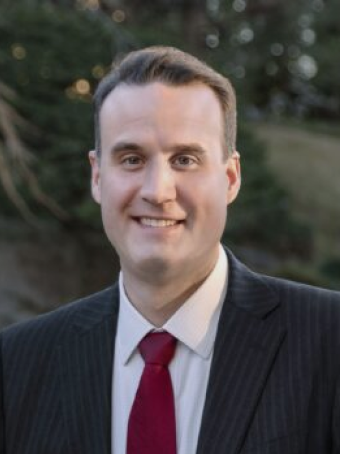
Visiting Research Fellow
Paul Nadeau
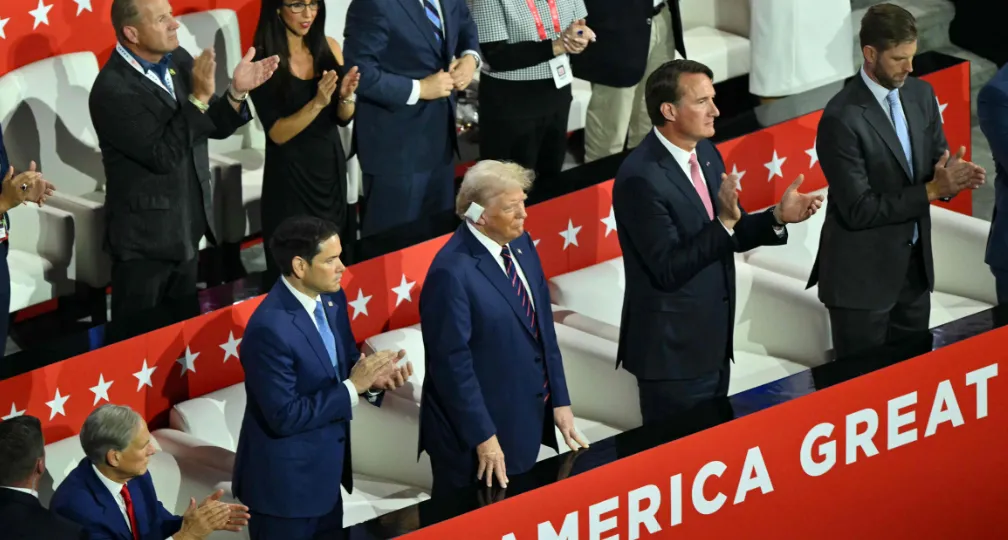
Tariff Man Announces Tariffs / Trump Announce…

Visiting Research Fellow
Paul Nadeau
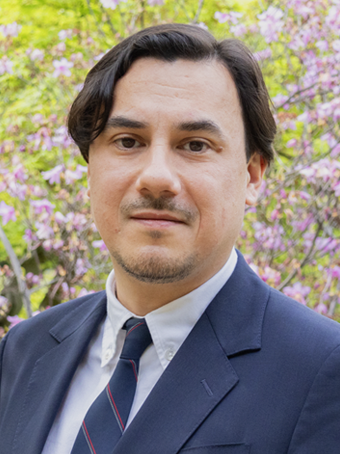
Visiting Research Fellow
Andrew Capistrano
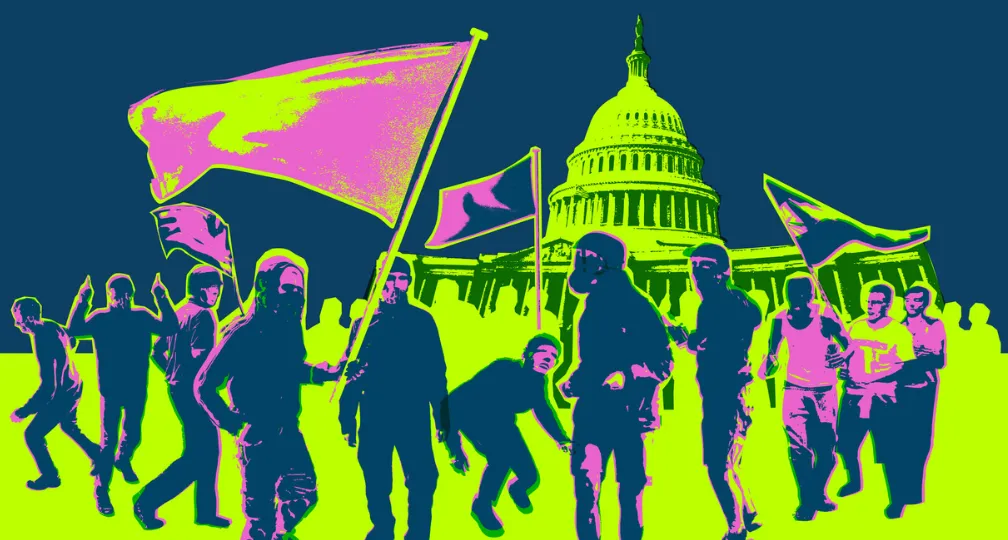
[Author: Marina Fujita Dickson, Research Asso…
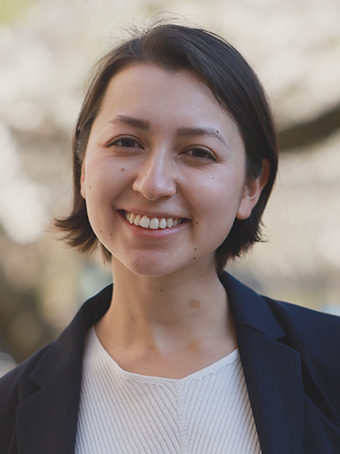
Research Associate
Marina Fujita Dickson
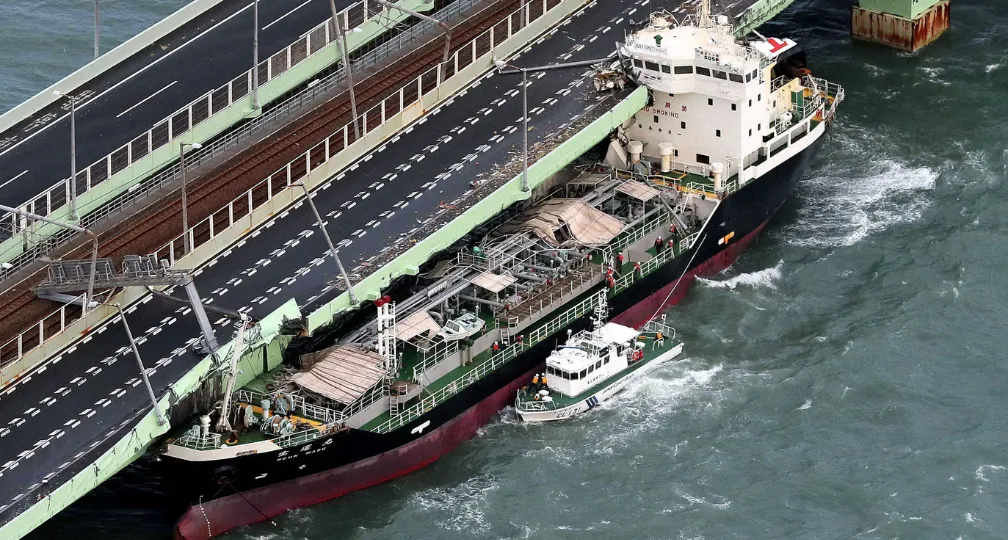
This report identified three intertwined fact…

Research Fellow
Yusuke Ishikawa







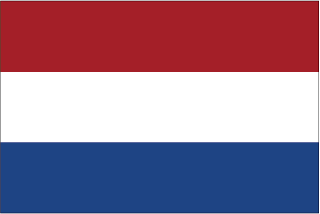
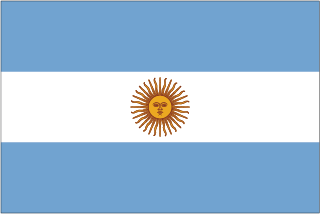
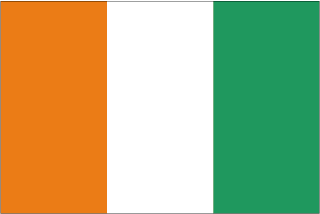
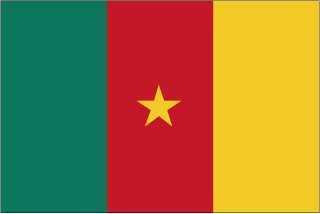
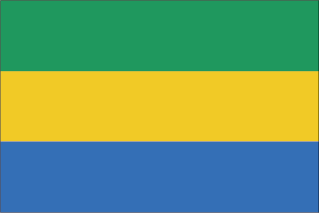


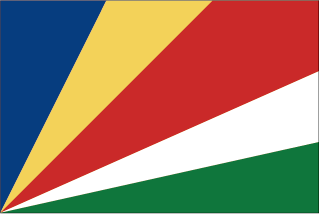

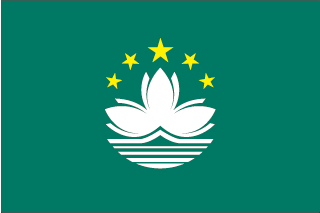

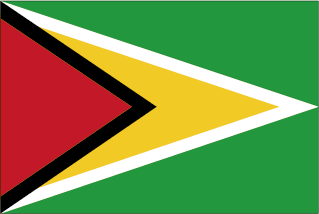
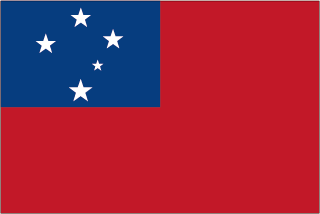
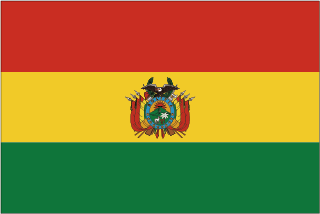
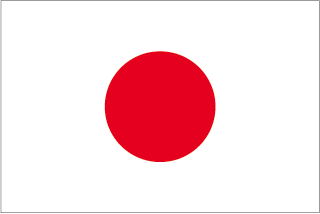


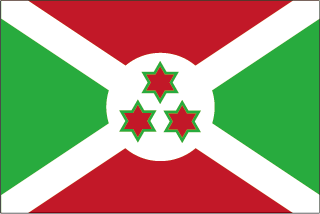

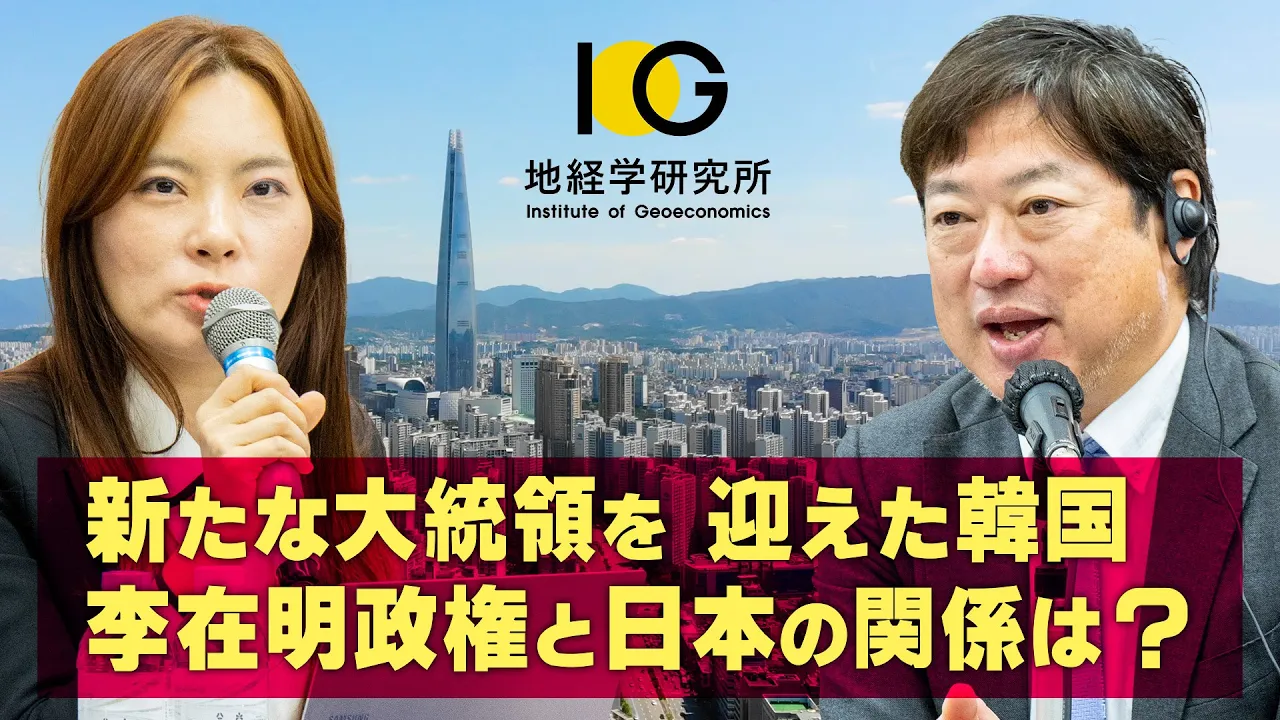


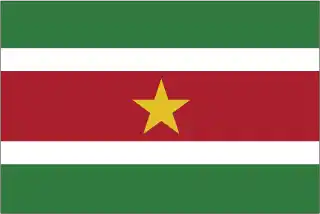

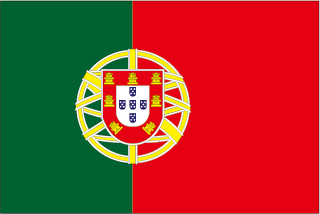





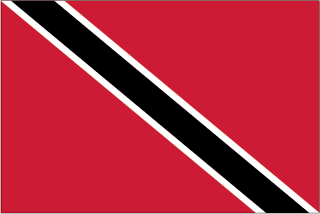



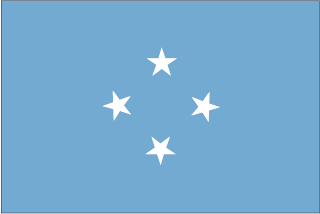
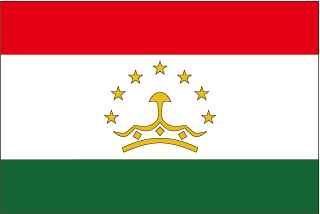



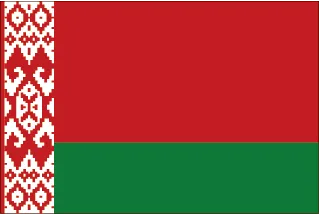
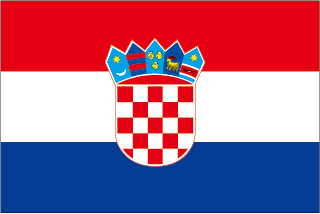
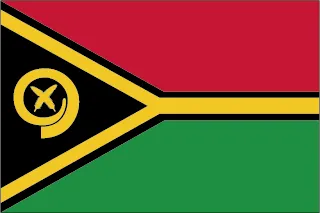
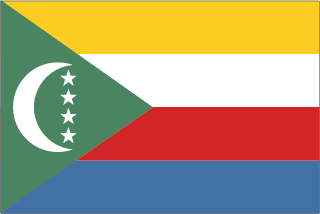





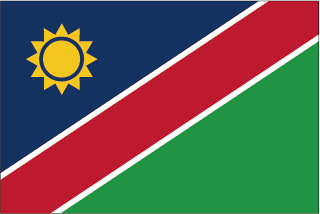
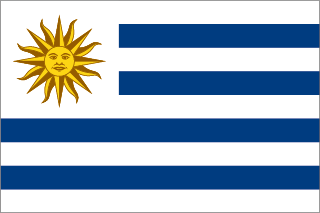
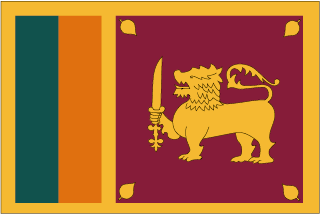
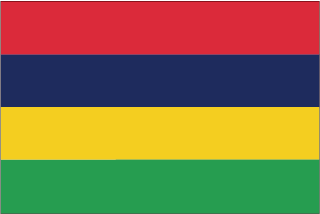

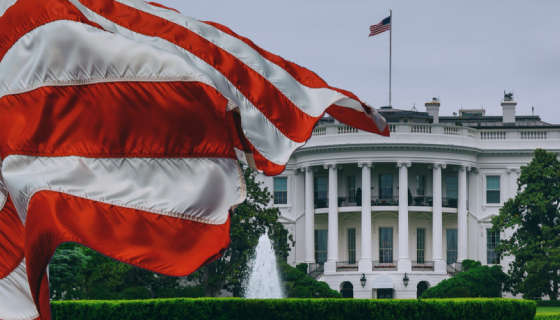

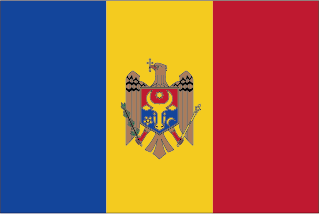
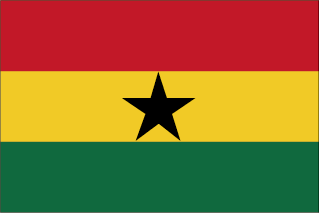
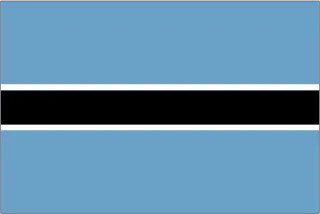
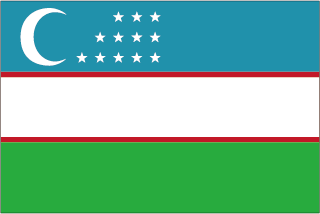


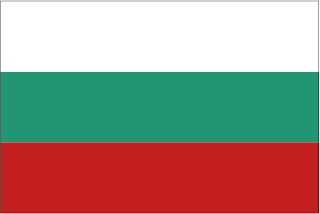
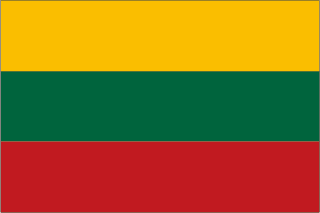
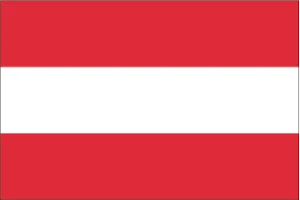


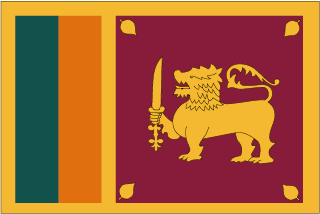

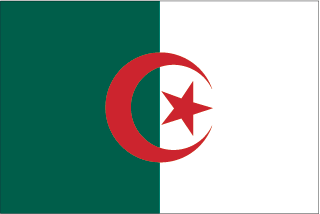

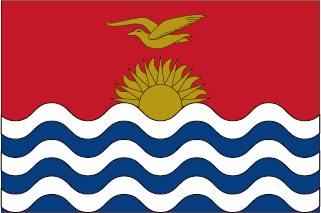
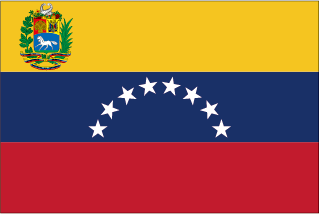
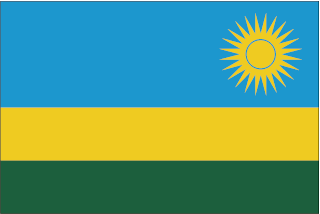



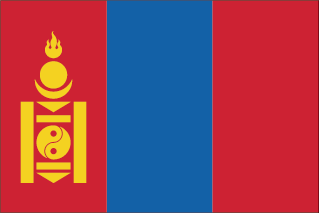
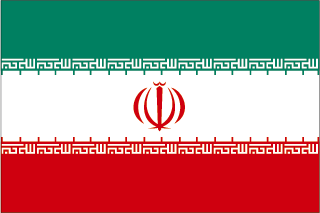
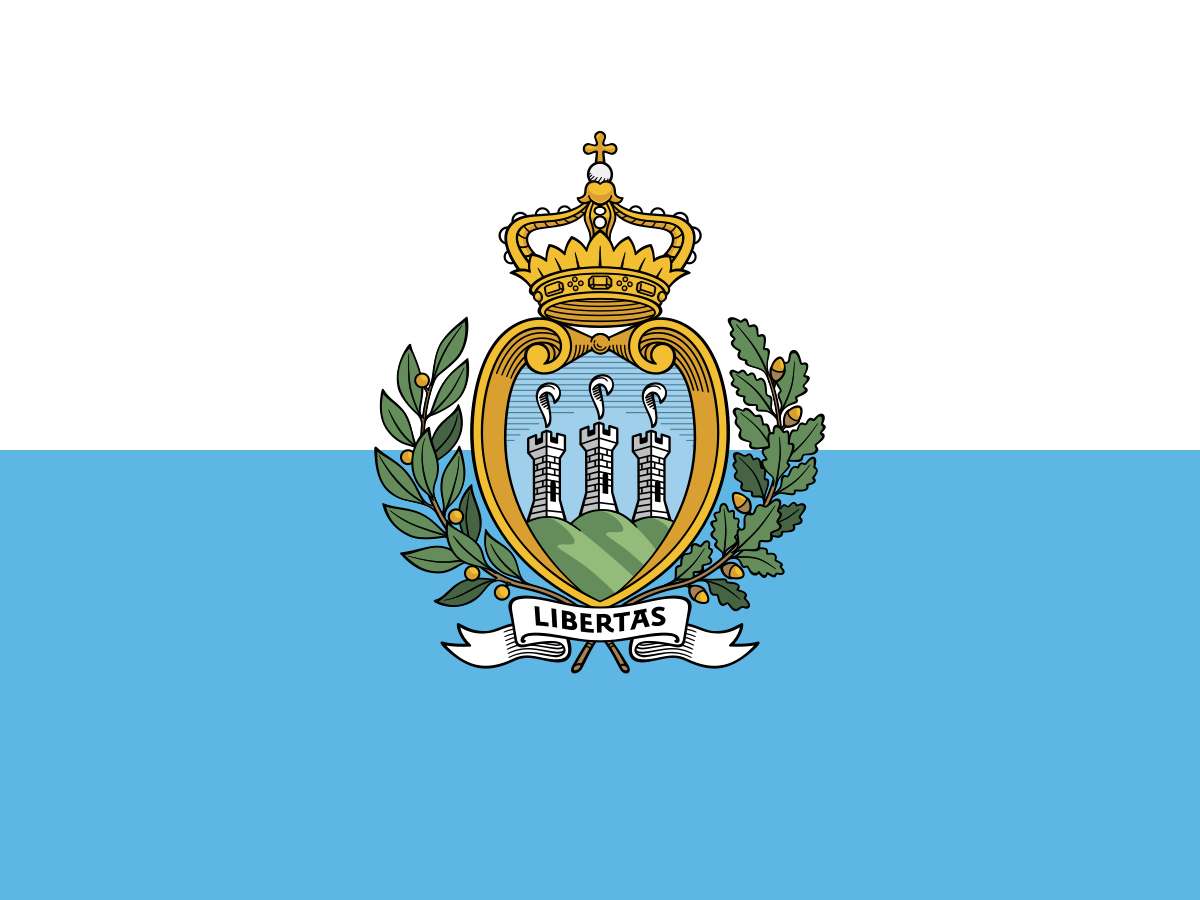
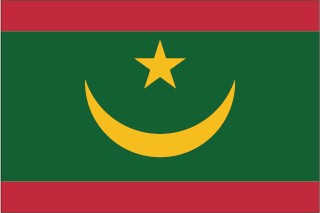
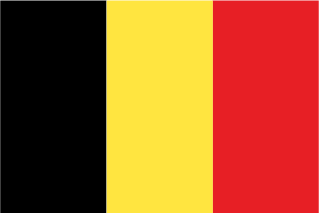
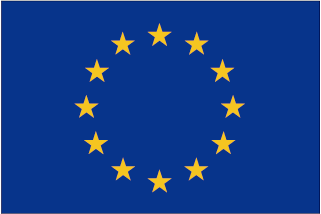
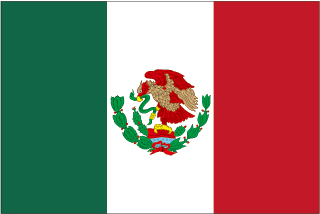
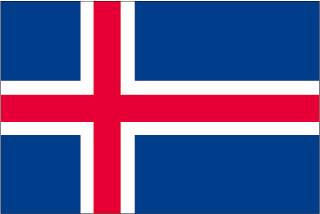
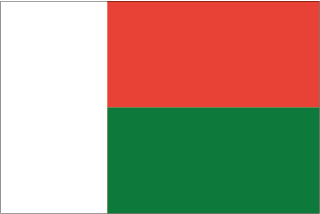
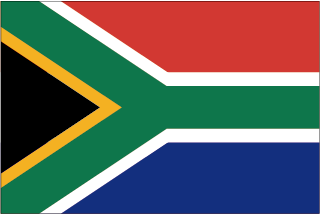
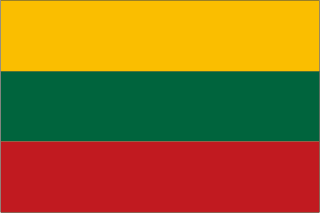
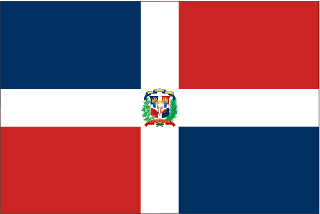
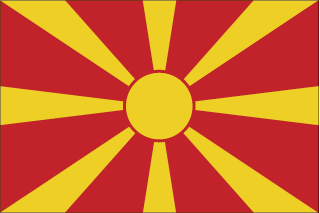
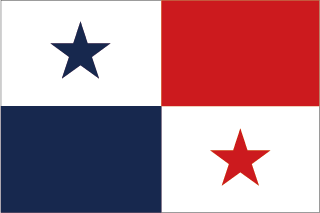
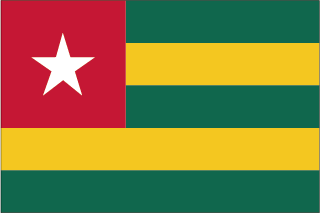
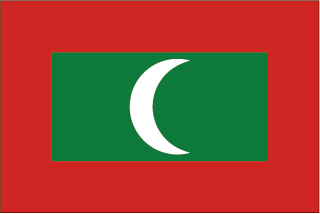
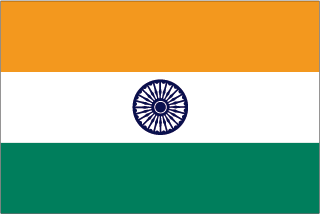

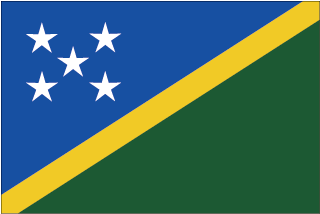
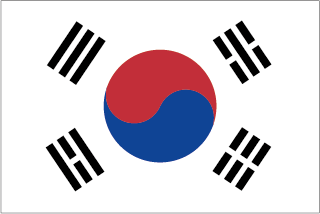


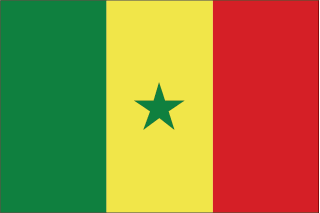
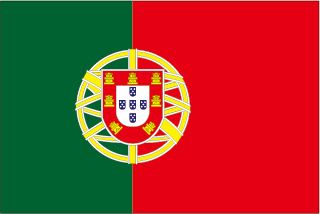
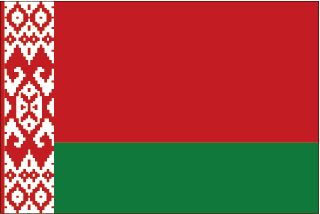
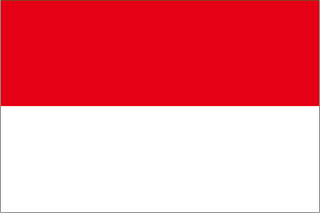
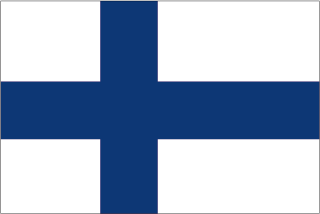
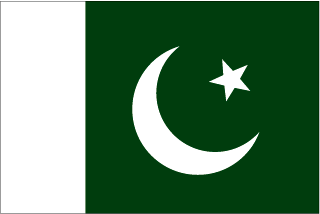
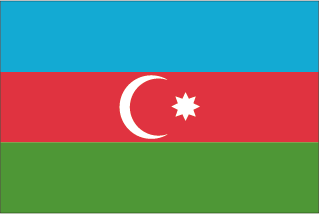
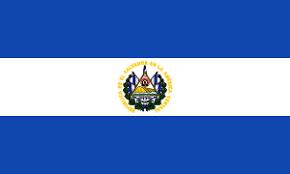
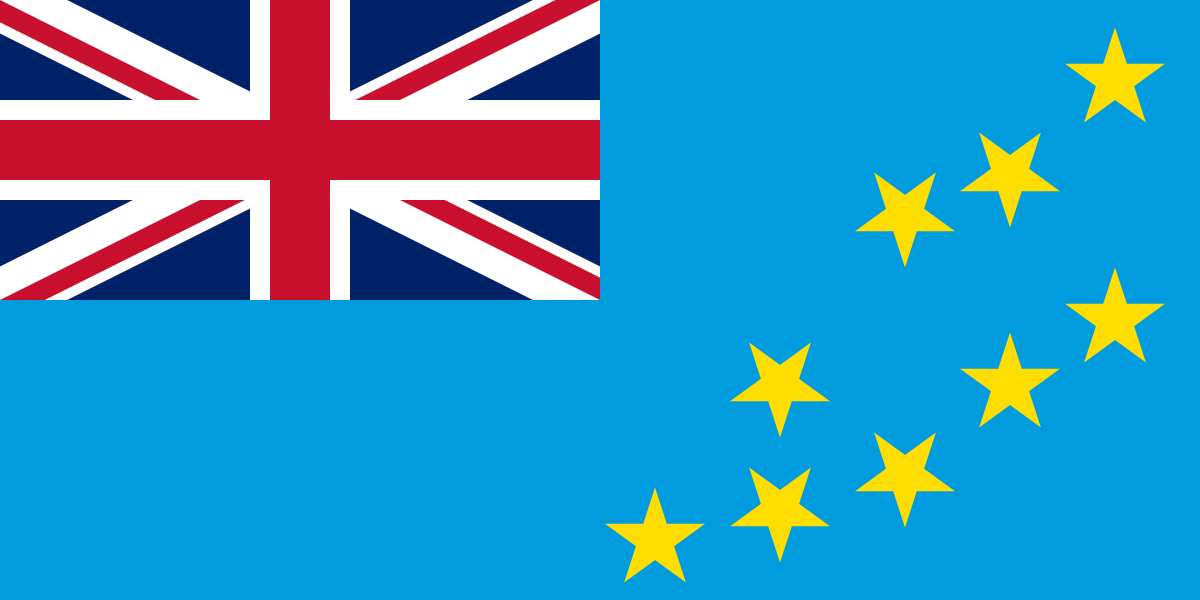
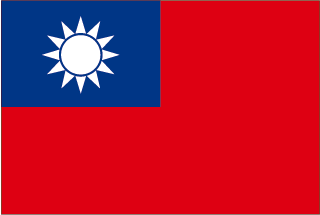
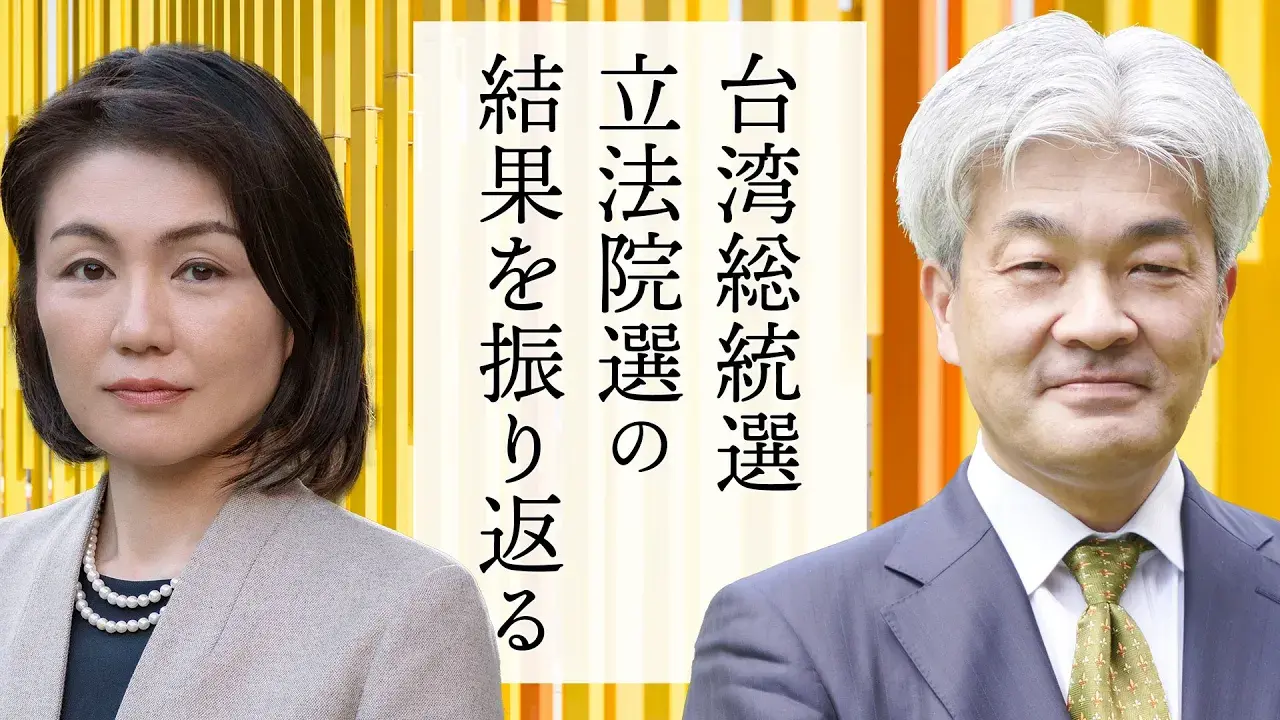
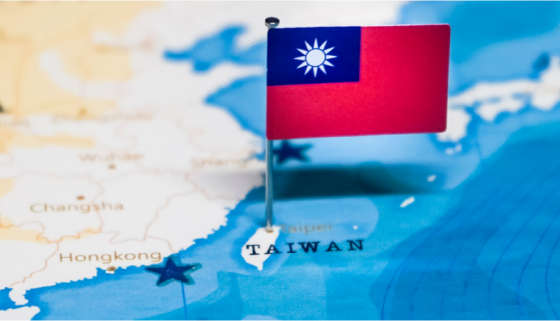
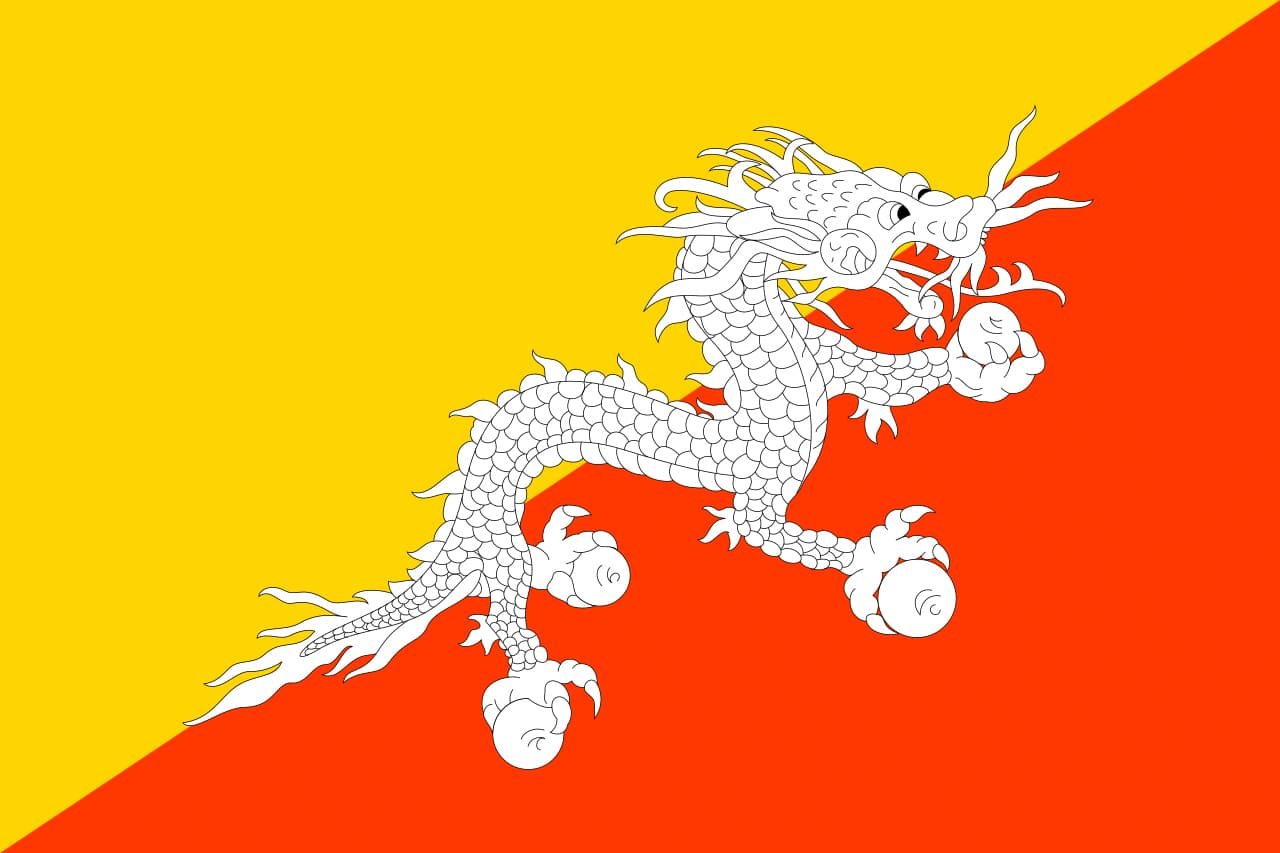

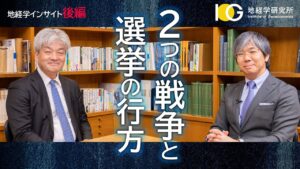
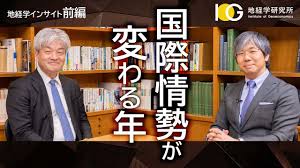
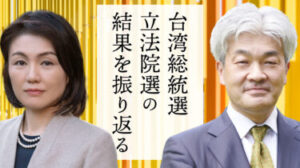
Commentary
2025年11月16日、チリ共和国で大統領選と議会選(下院:155議席、上院:50議席)が実施された。同国はピノチェト政権時代から「シカゴボーイズ」と呼ばれる新自由主義的政策を推進するテクノクラートが経済運営を行い、「南米の優等生」とも呼ばれ、長らく安定した政治・経済を維持してきた。しかし、2021年以降、組織犯罪や不法移民の急増により治安が急速に悪化し、国民の最大の関心事となっている。
議会選挙では、下院の全議席と上院の過半数の議席が争われた。下院では左派勢力が約44%の得票にとどまり、64議席を獲得したものの過半数を失い、右派・中道勢力が約56%の得票で90議席を獲得し、下院で多数派となった。上院では、左右両陣営がそれぞれ25議席を占め、勢力が拮抗する結果となった。
大統領選の初回投票では、与党・チリ共産党のジャネット・ハラ候補が約26%で首位に立ち、「Make Chile Great Again」をスローガンに掲げる極右・共和党のホセ・アントニオ・カスト候補が24%で続き、両者が12月の決選投票に進んだ。共産党候補が統一左派を代表するのは史上初であり、ハラ氏は警察力の強化、刑務所の拡張、治安部門の近代化・新装備導入など、治安対策を中心に掲げた。一方、カスト氏は不法移民の大量送還や国境強化を主張し、右派票が分散したにもかかわらず高い支持を確保した。候補者の中で最左派のハラ氏と最右派のカスト氏が決選投票に残ったことは、チリの政治が大きく分断されていることを示唆し、中道政党の衰退を象徴している。
12月14日に実施された決選投票では、カスト氏が約725万票(得票率58.1%)を獲得し、約522万票(41.8%)にとどまったハラ氏を下した。初回投票後の予測どおり、右派勢力の結集によってカスト氏が優位に立つ構図となった。総投票数は約1,342万票に達し、義務投票制導入後初の大統領選決選投票として過去最多を記録したほか、全国すべての州でカスト氏が勝利する結果となった。治安悪化や移民問題への不満が右派ポピュリズムを押し上げる構図は、2021年大統領選に続き今回も再現された。有権者の高い投票率は、治安と移民問題に対する国民の切迫感を改めて浮き彫りにしたといえる。